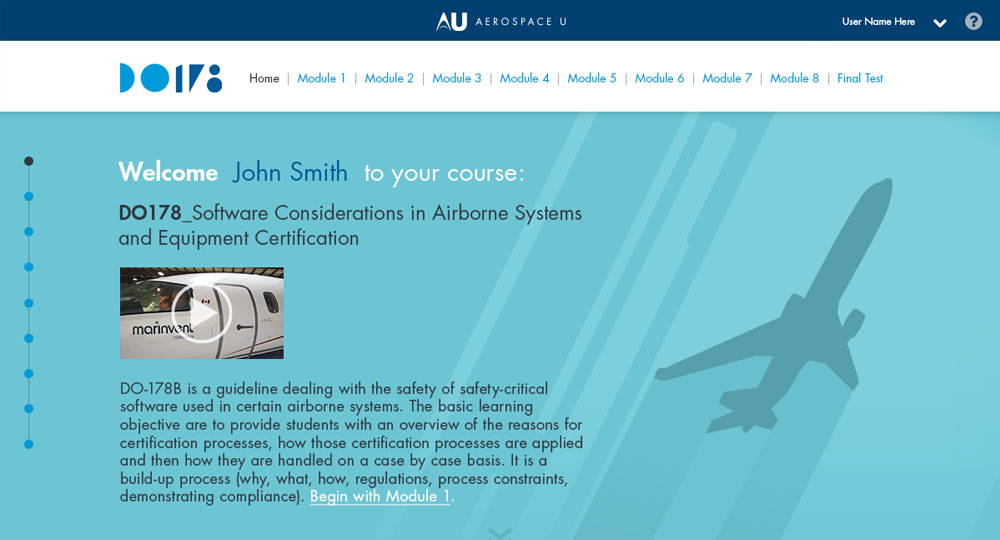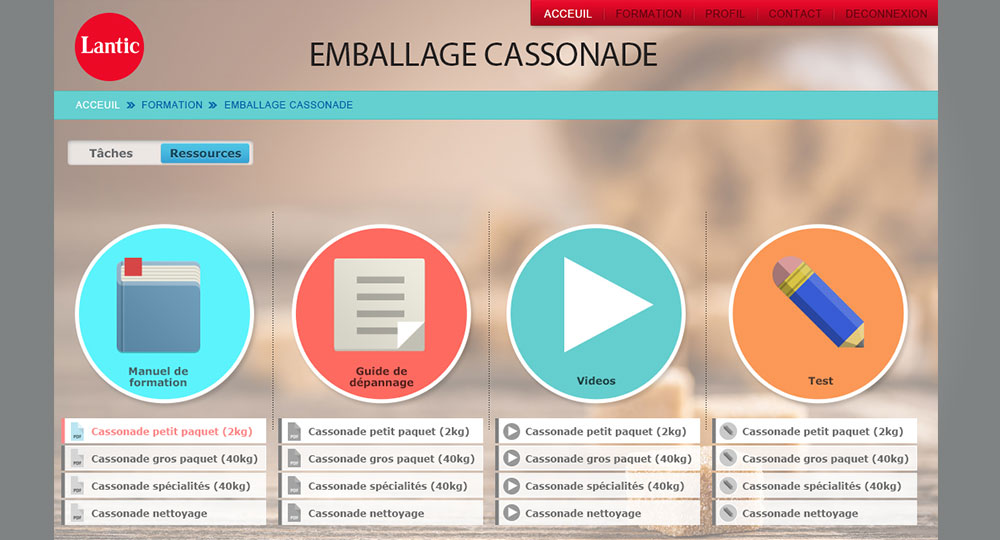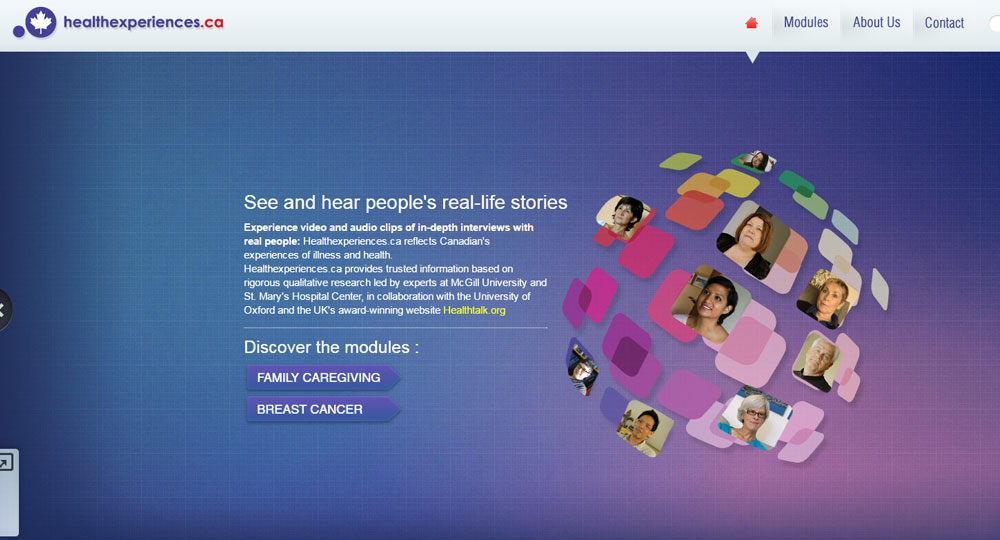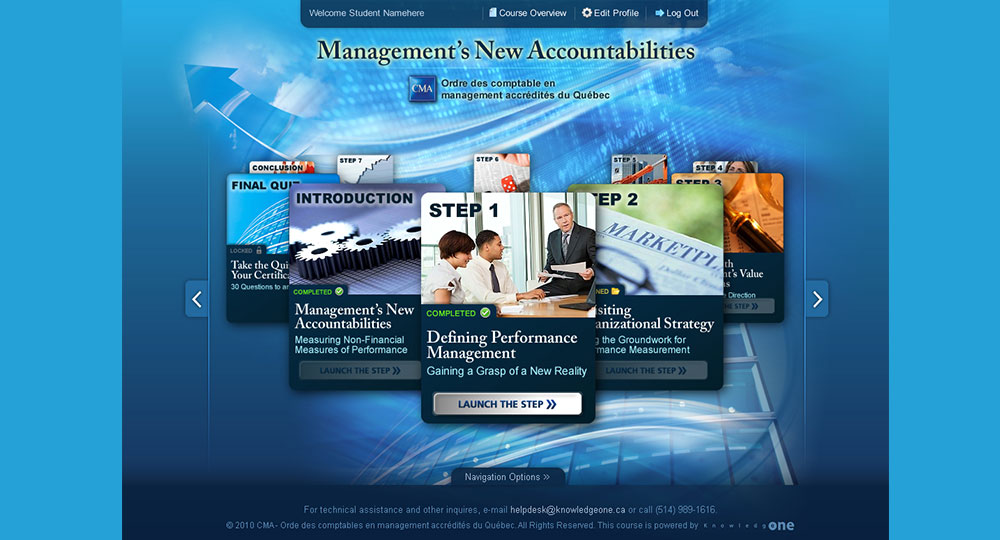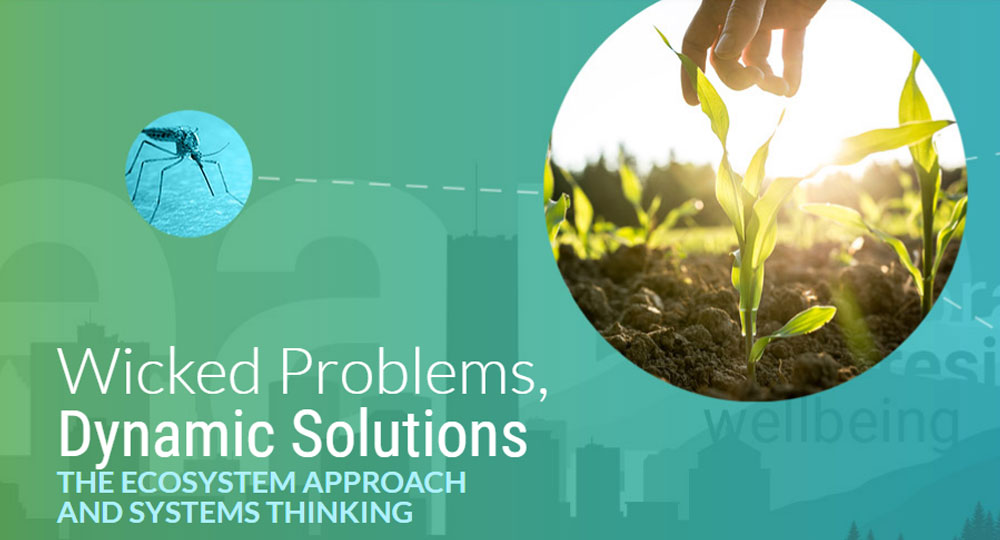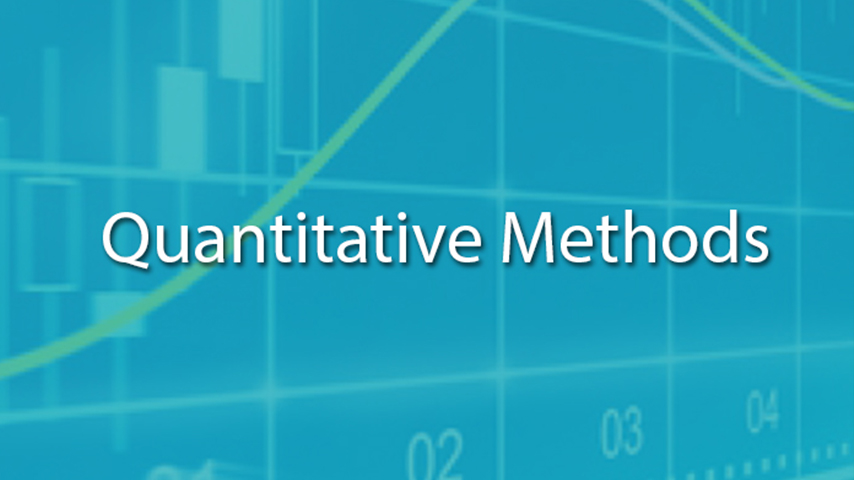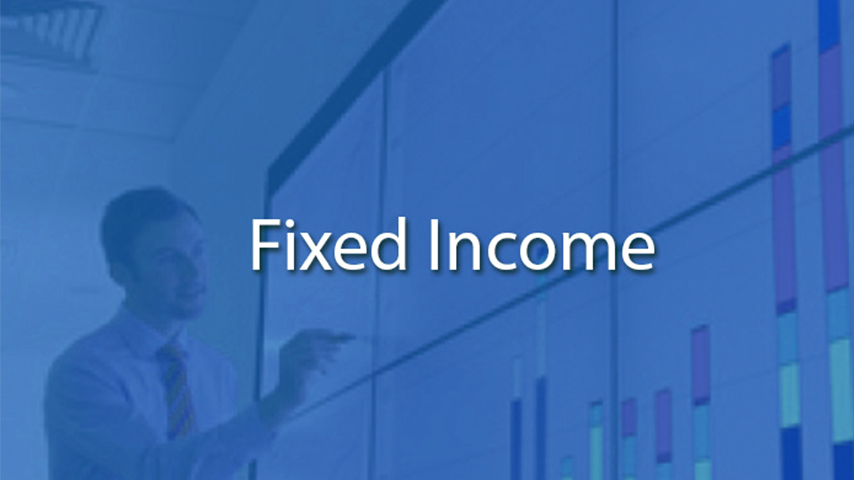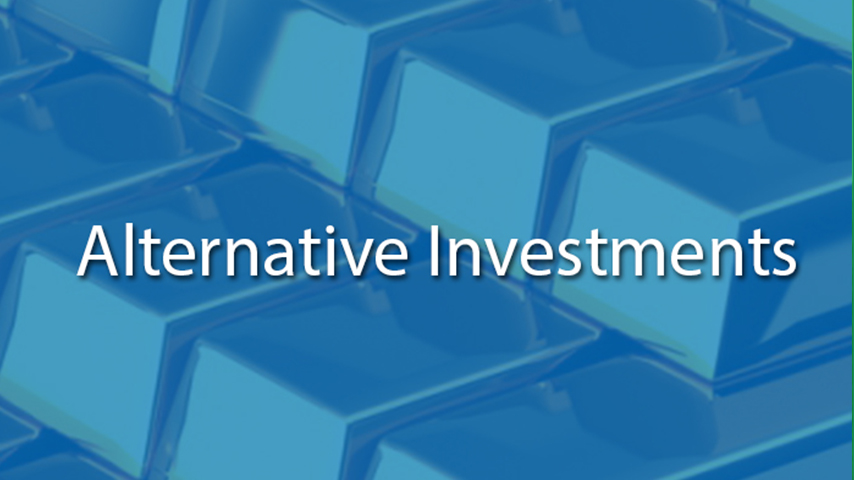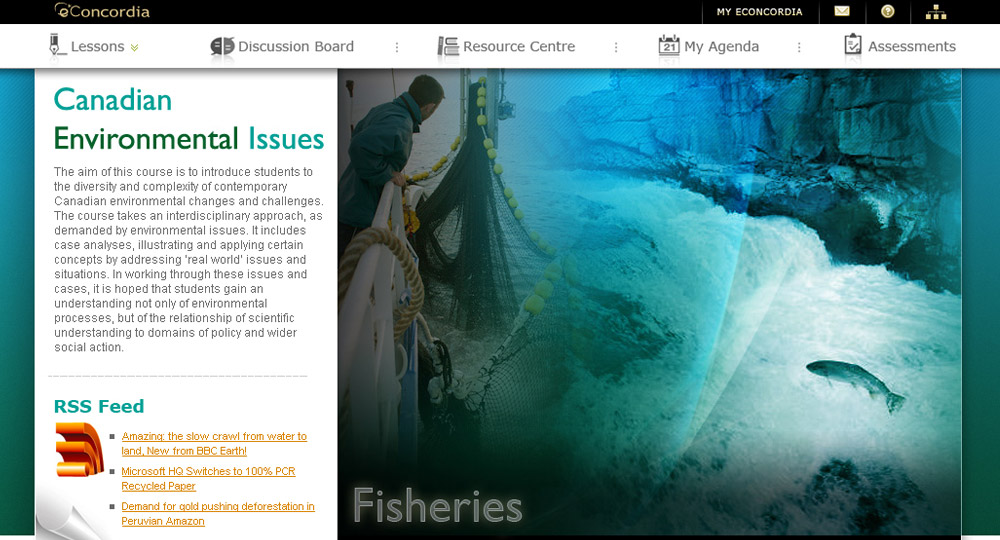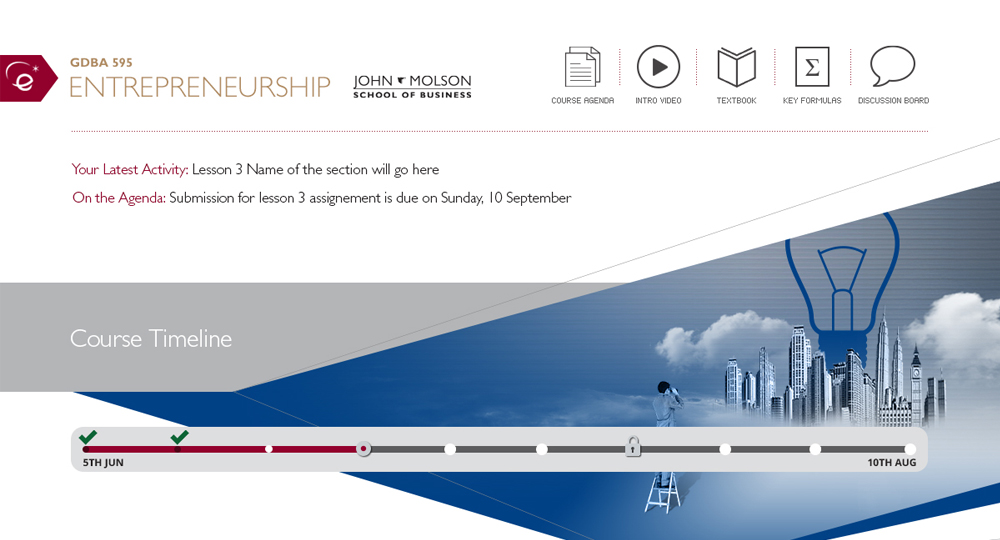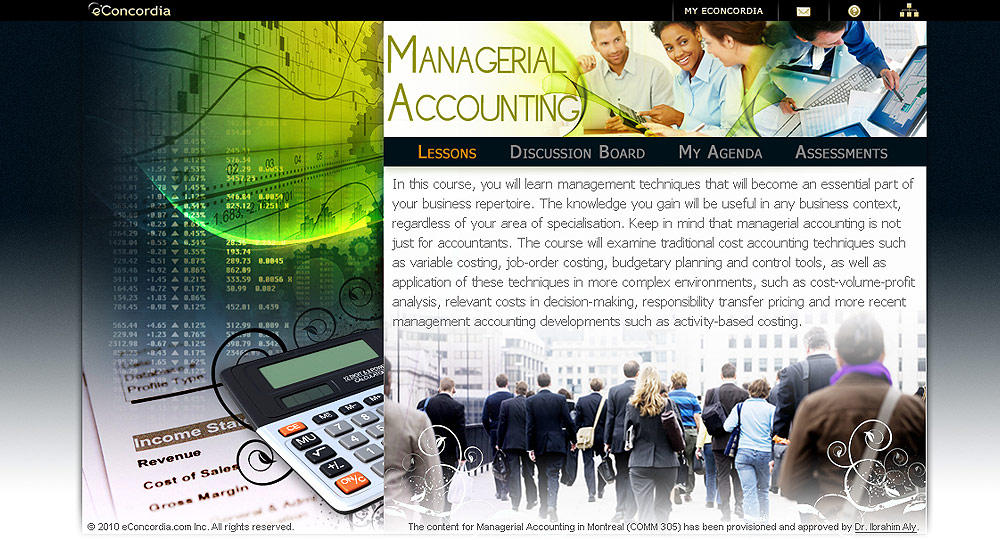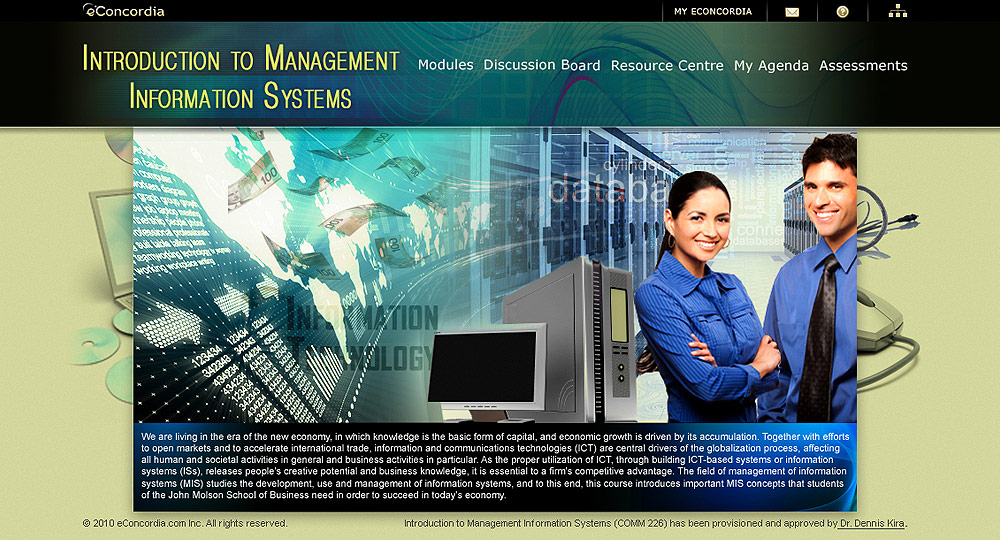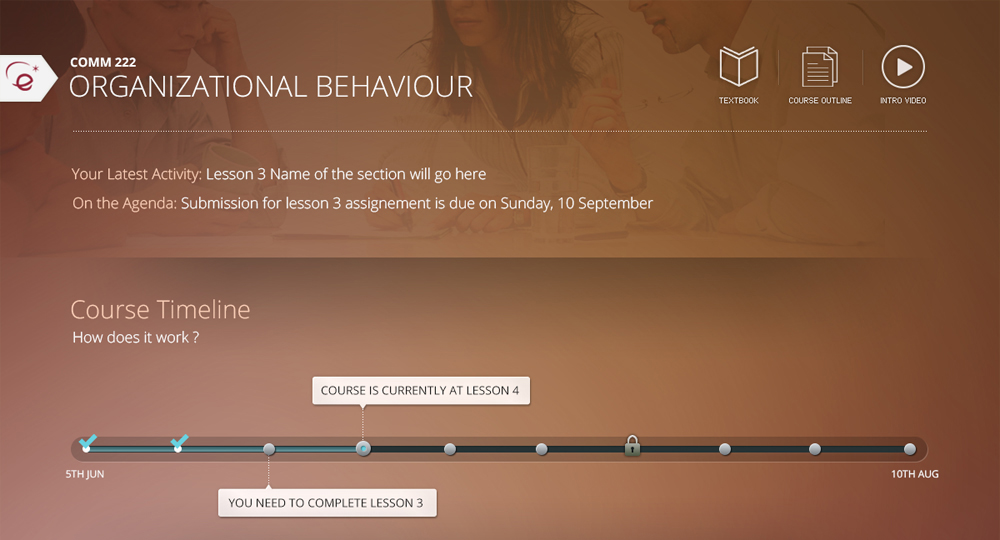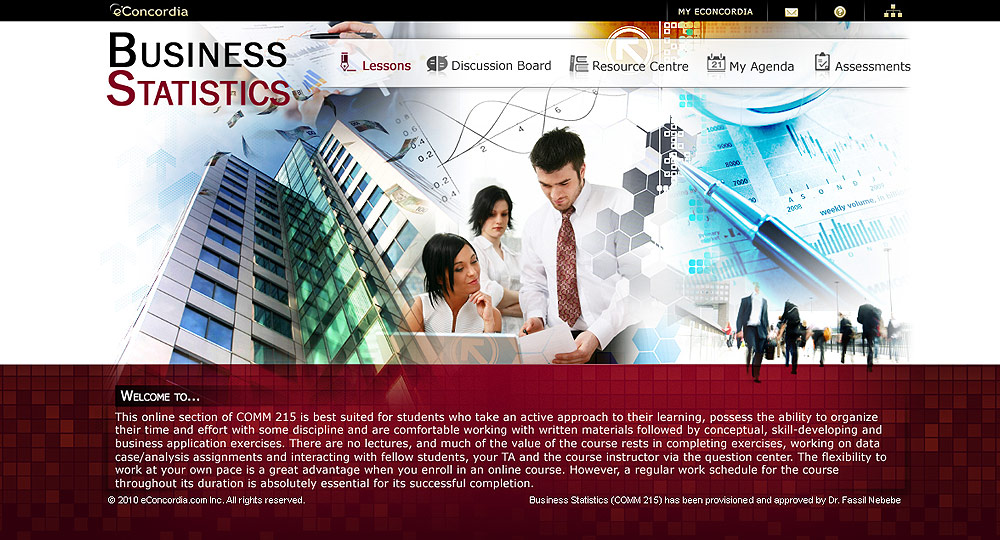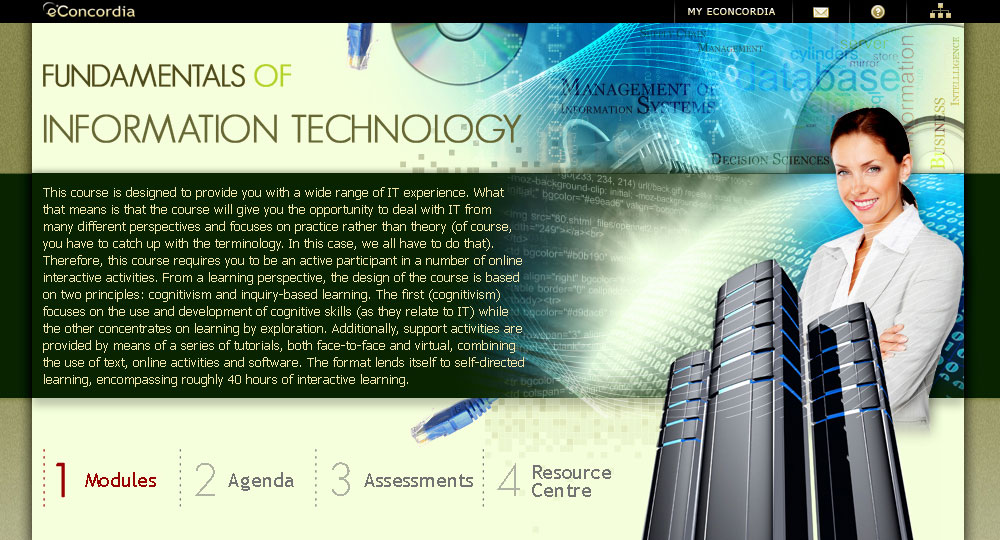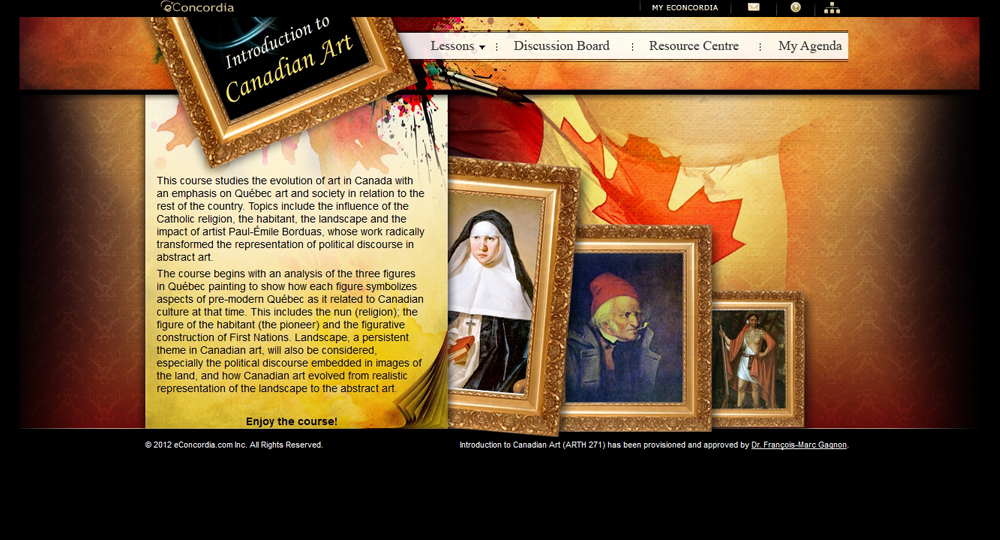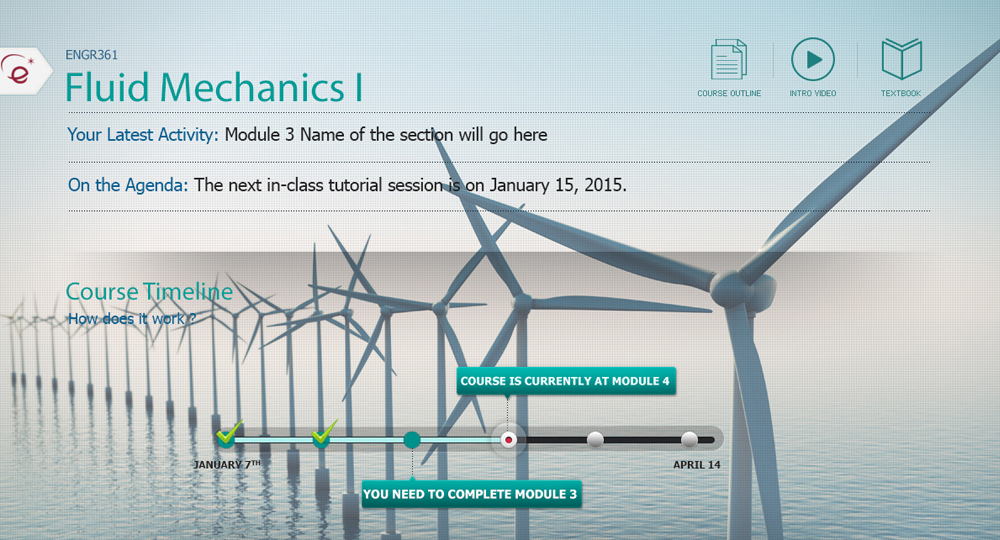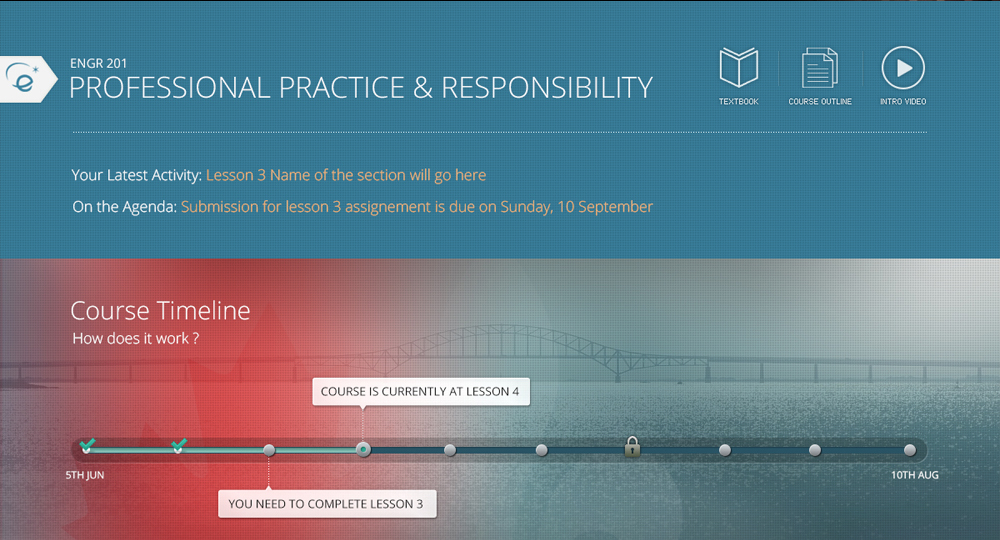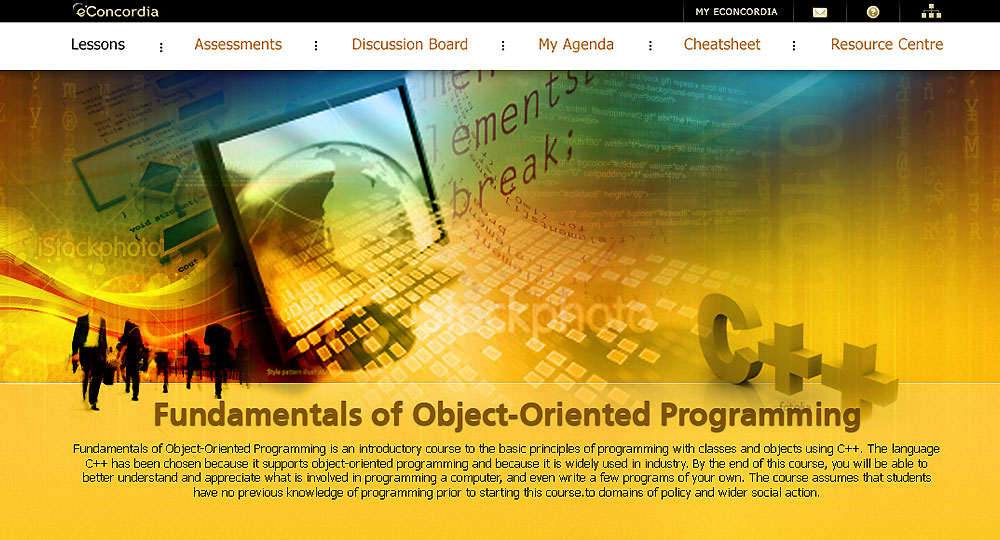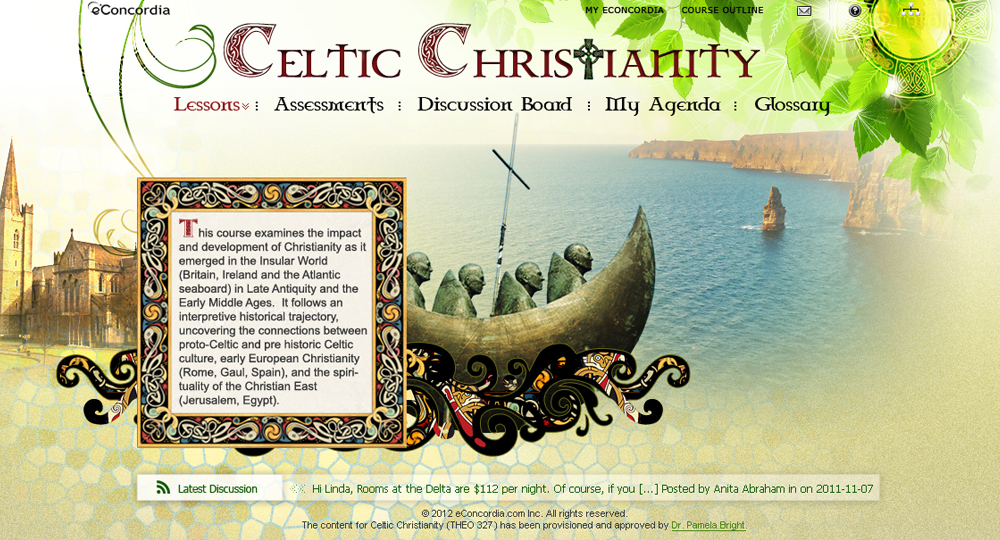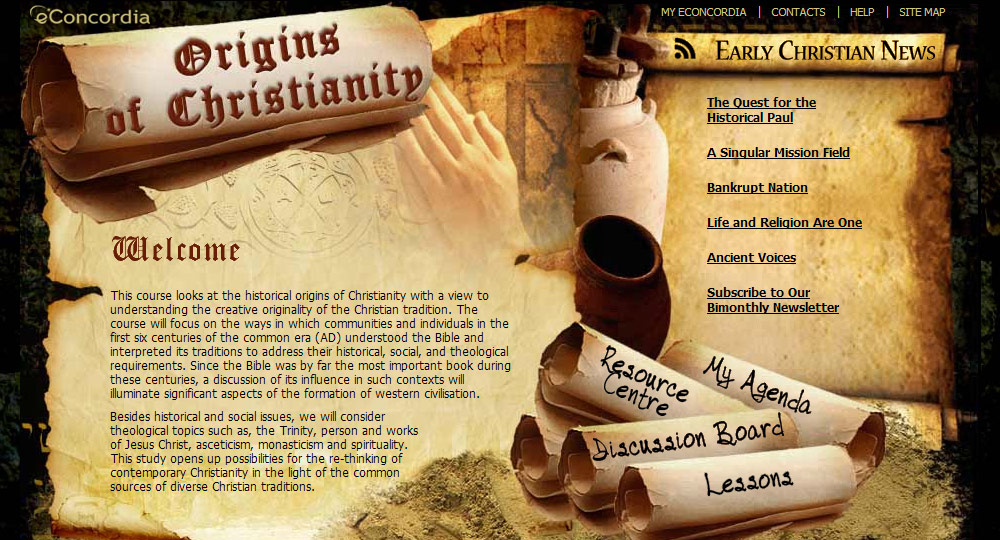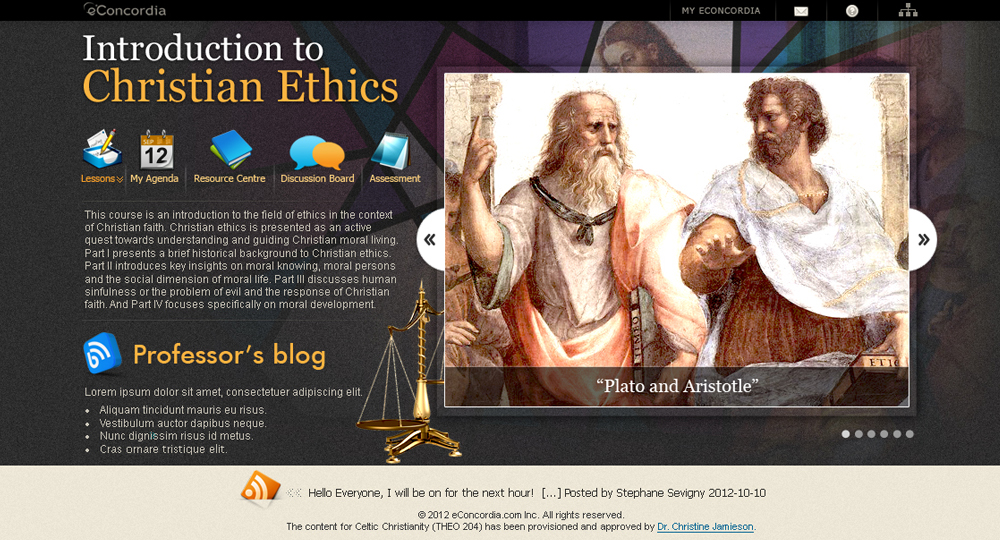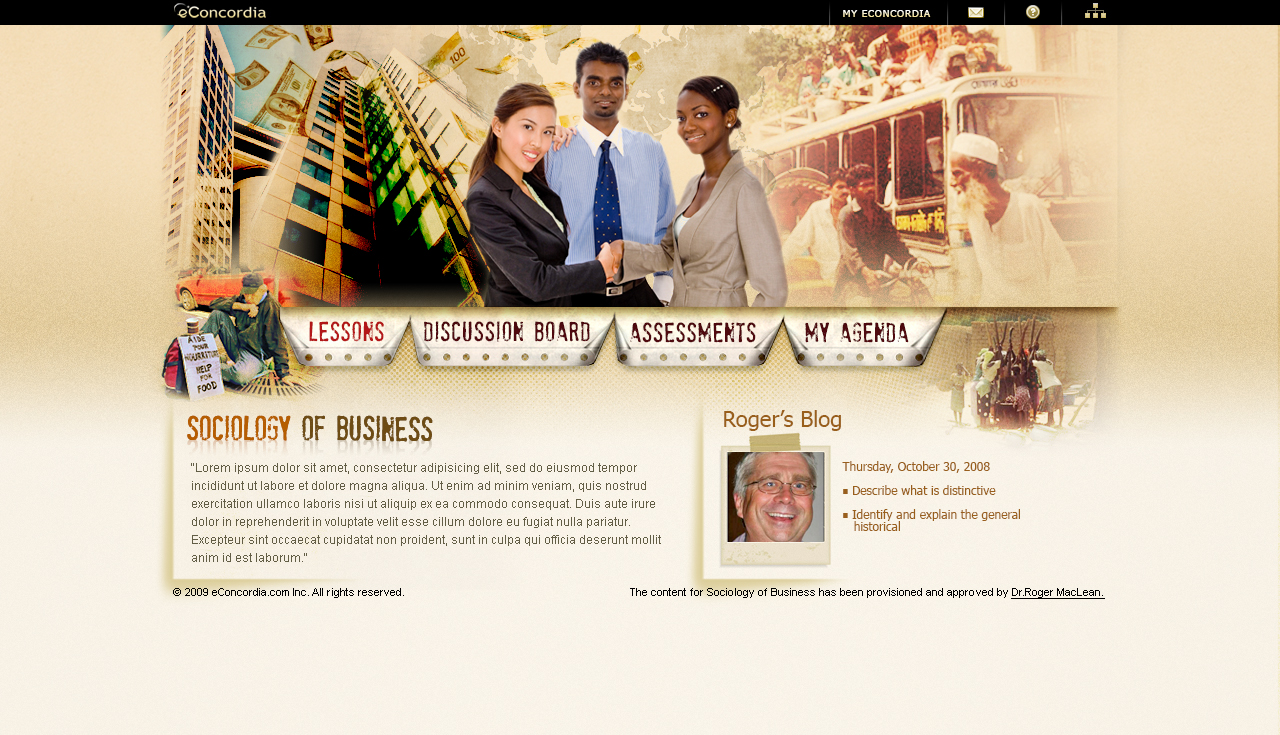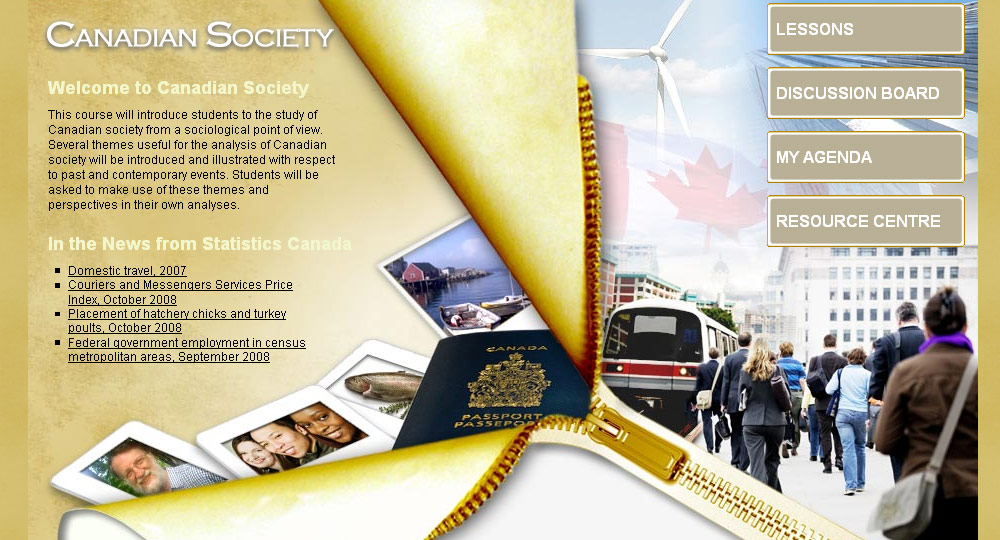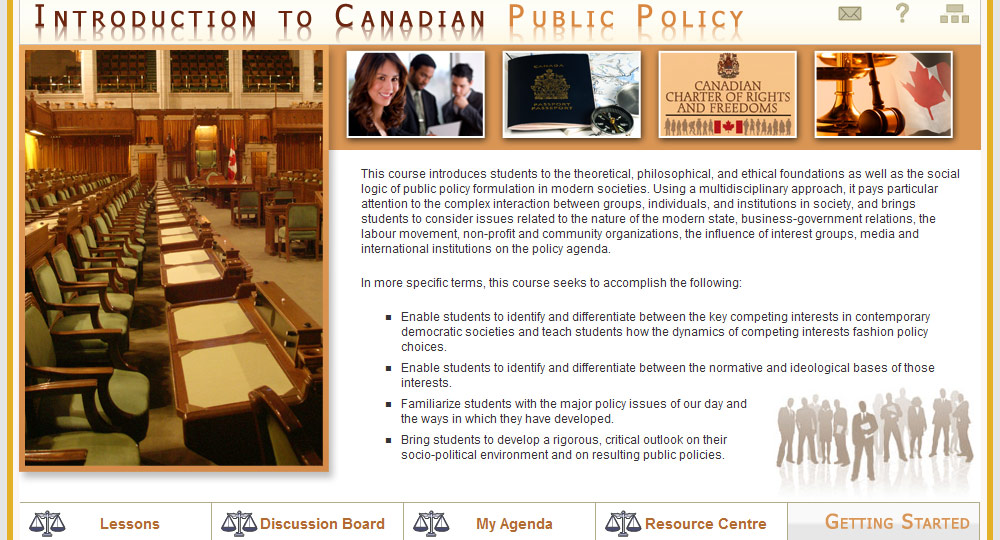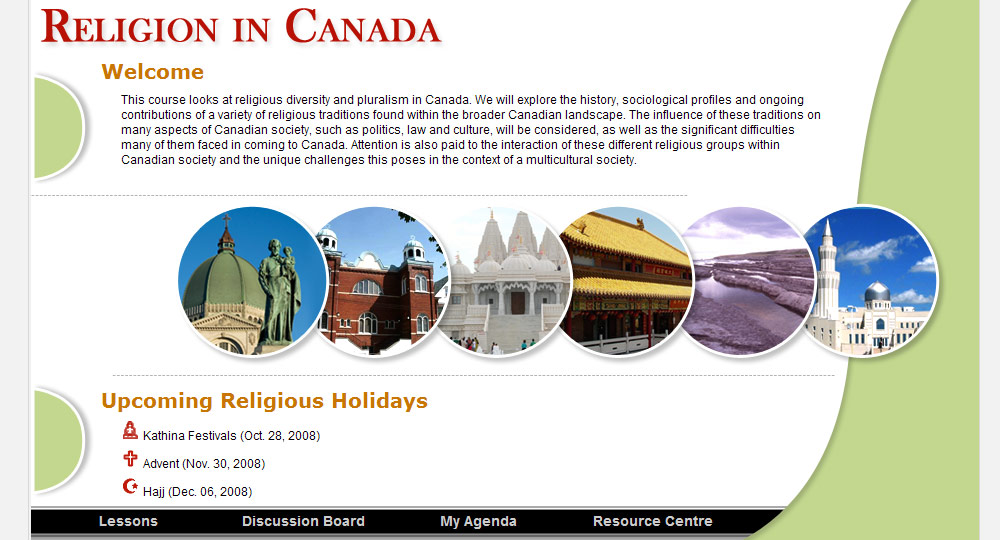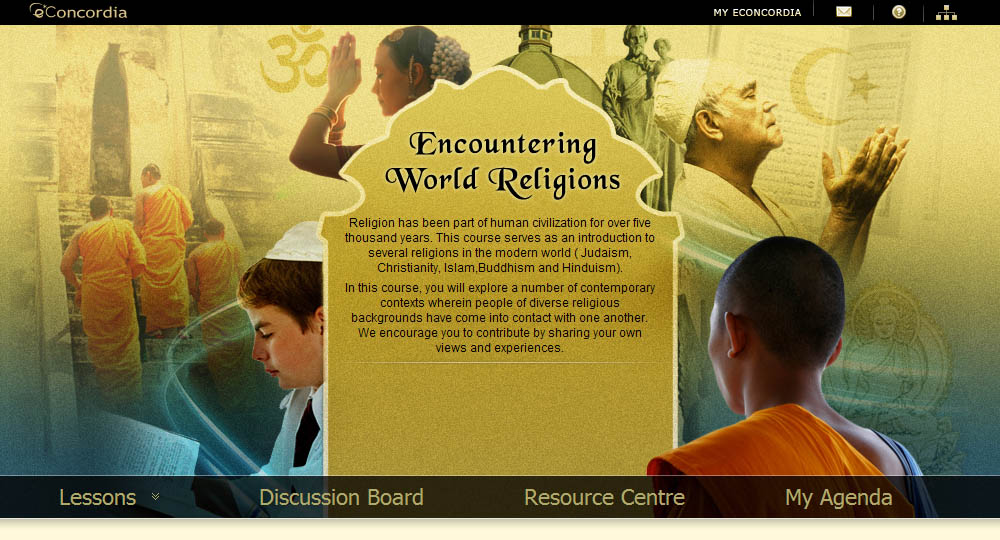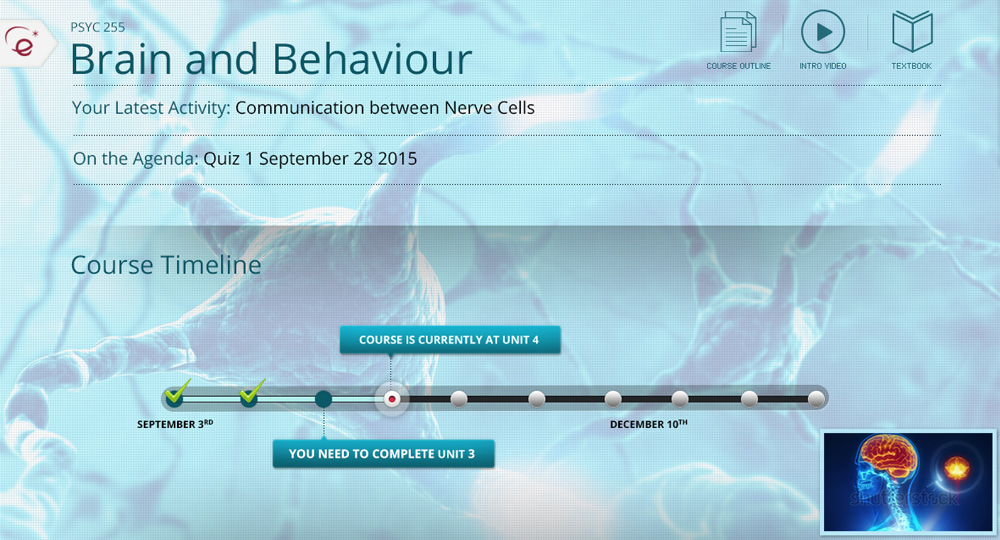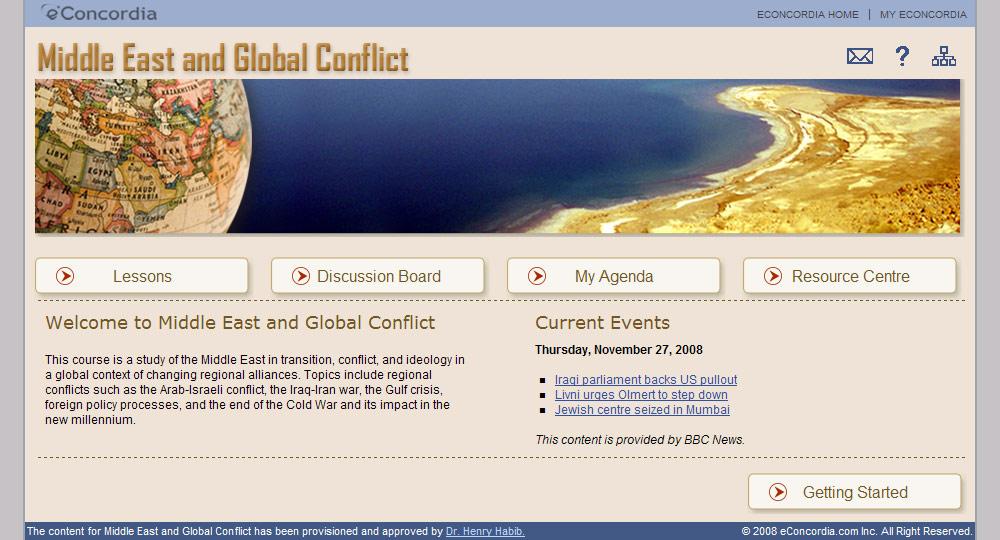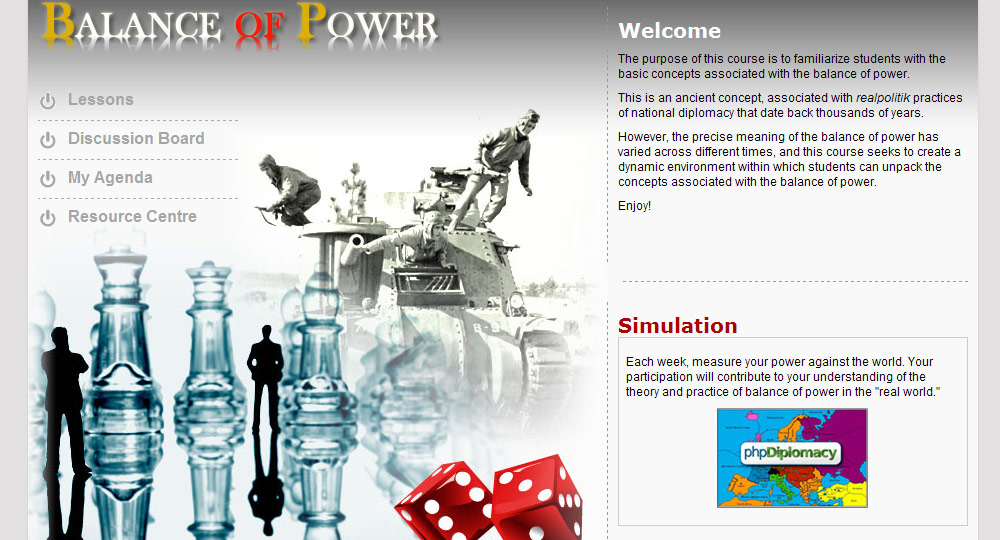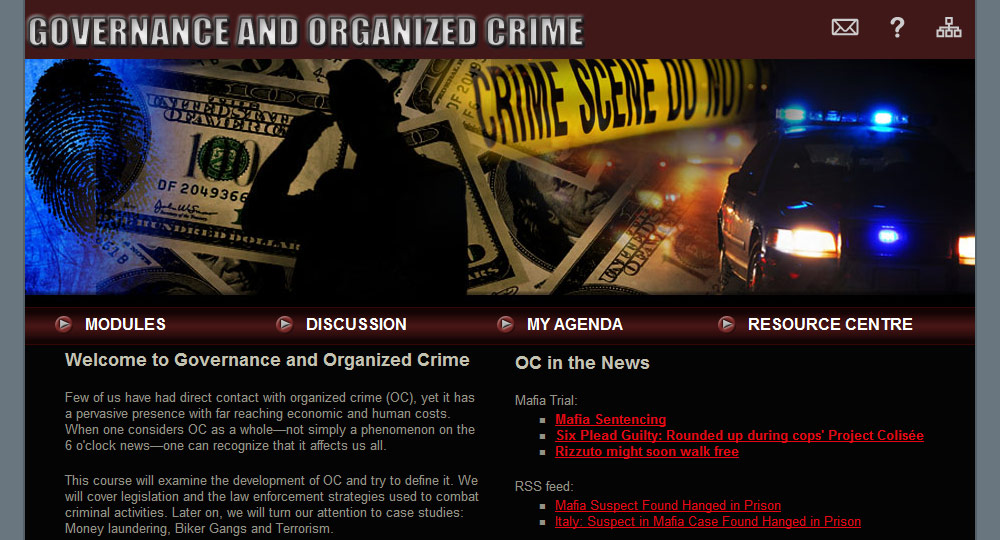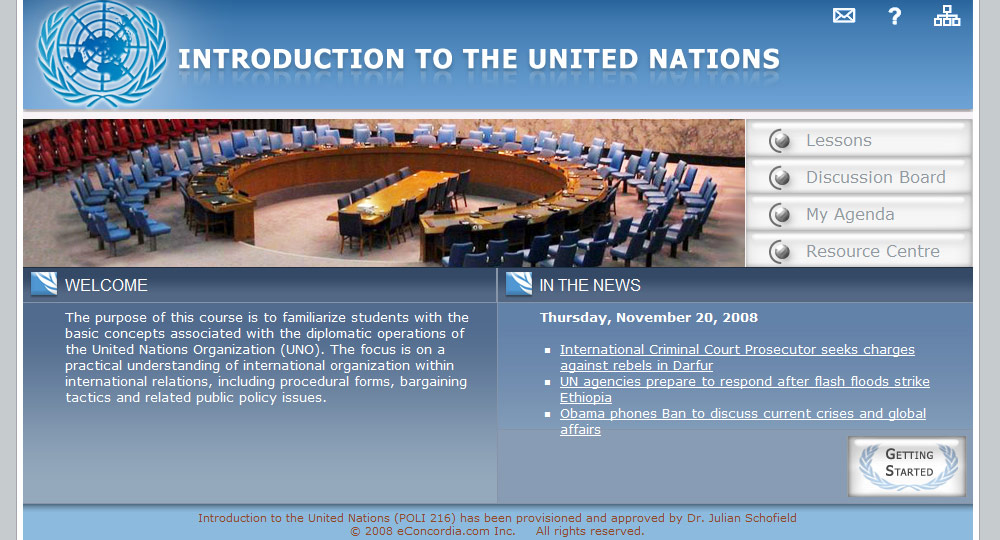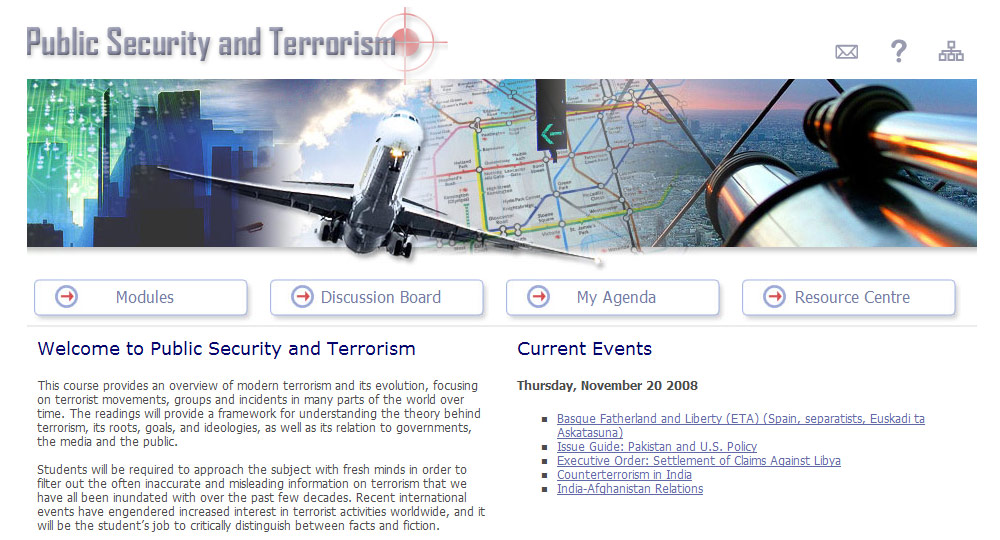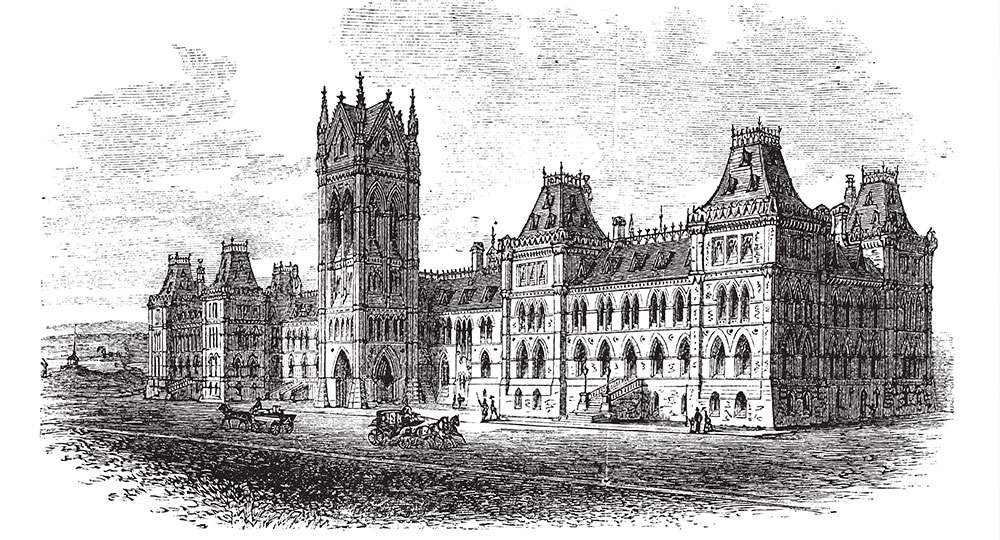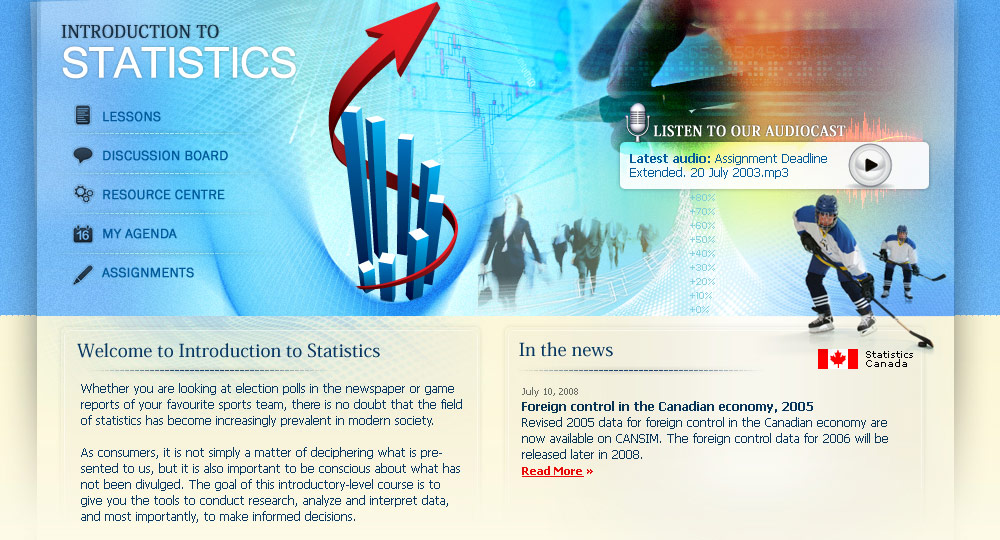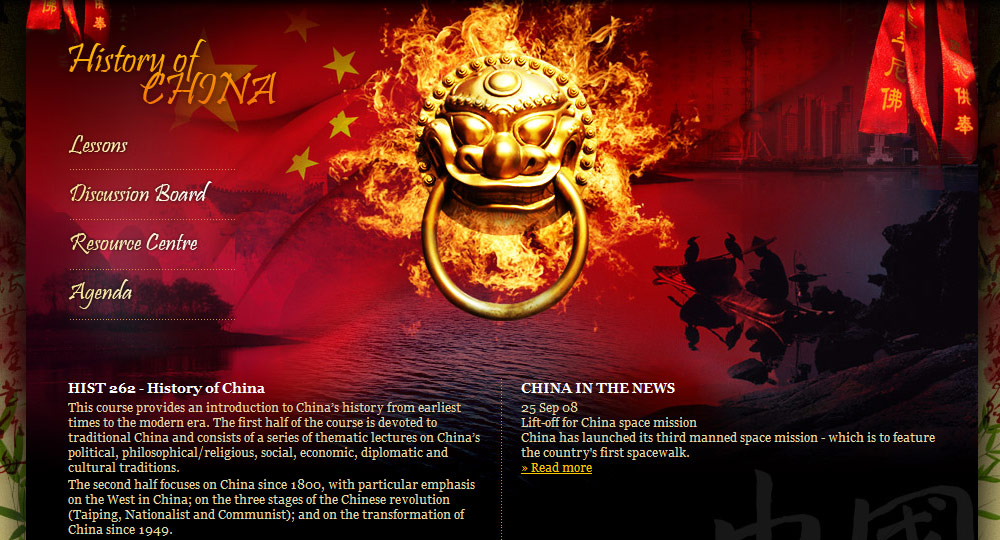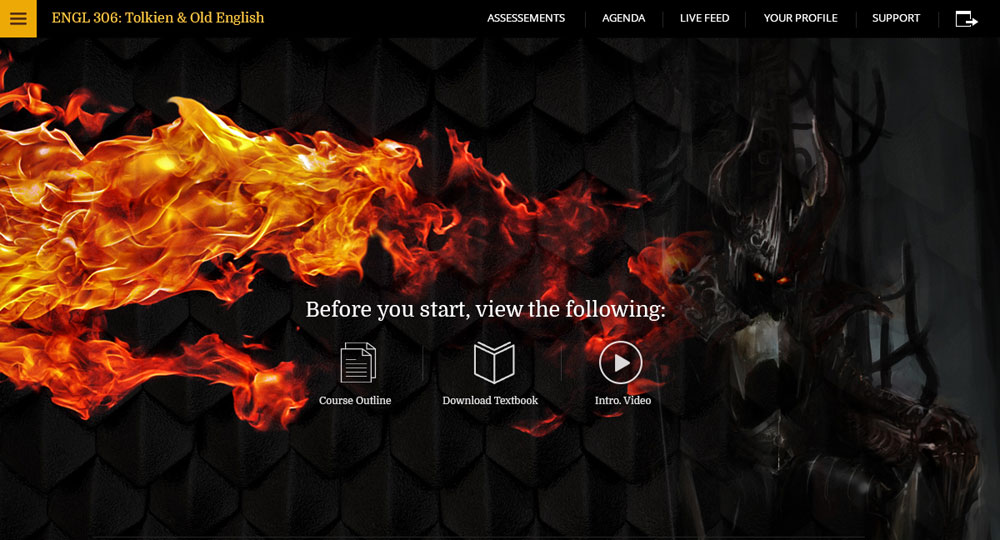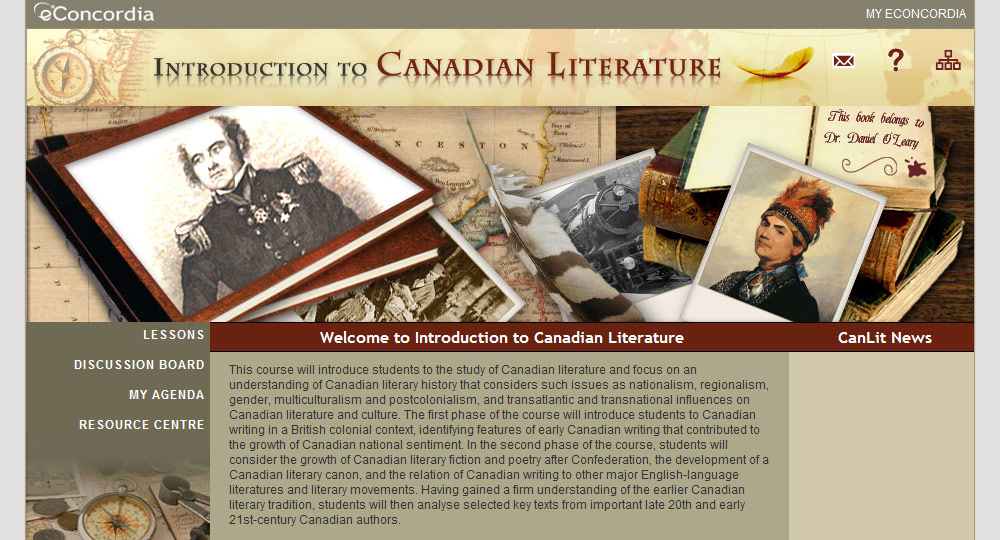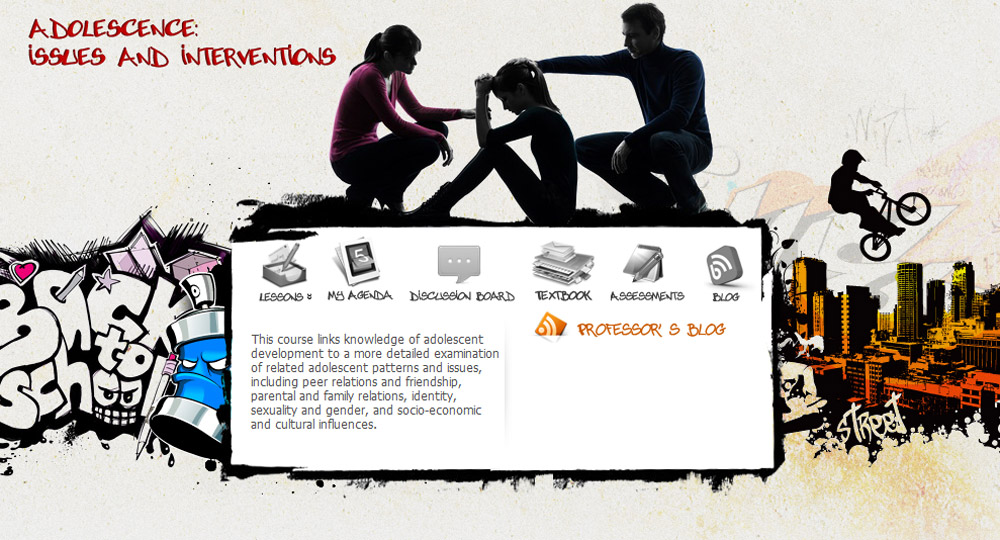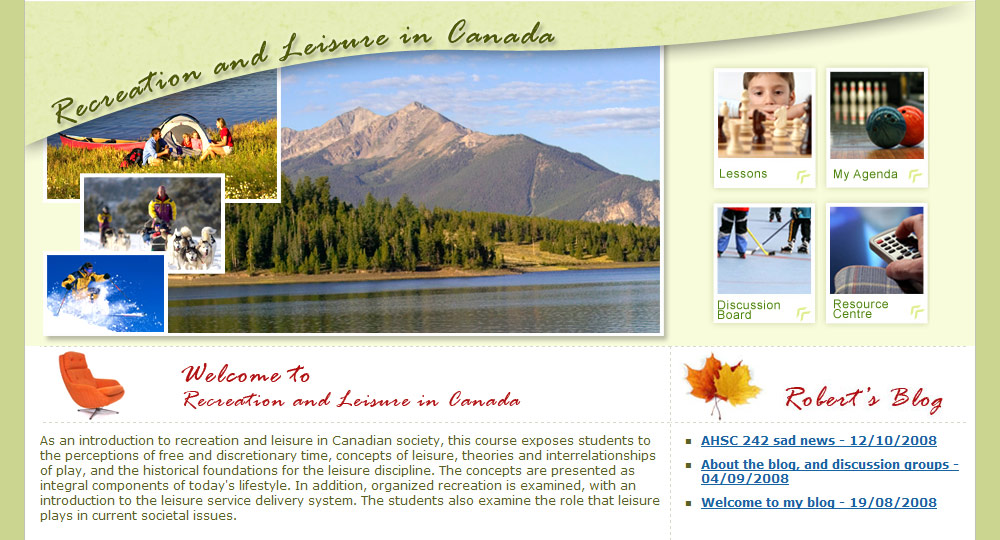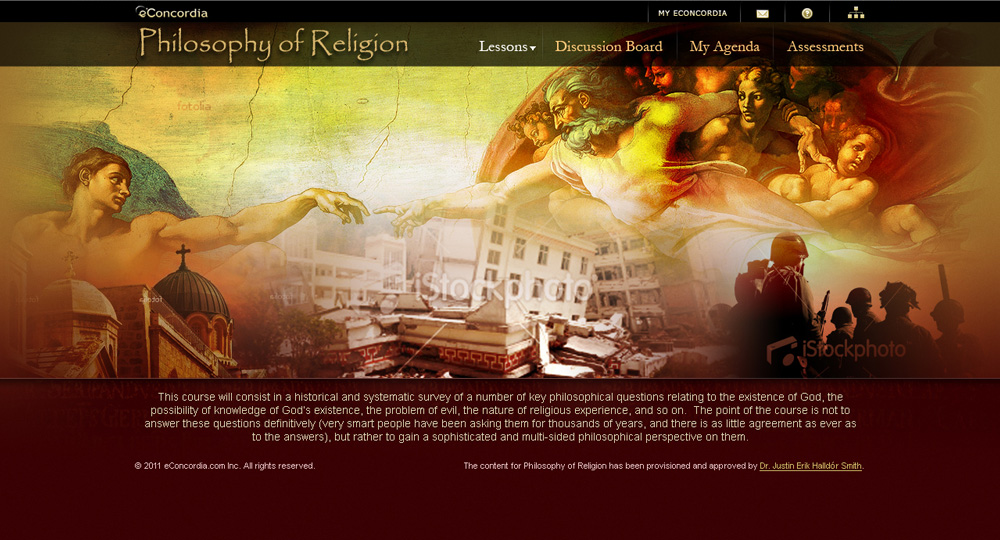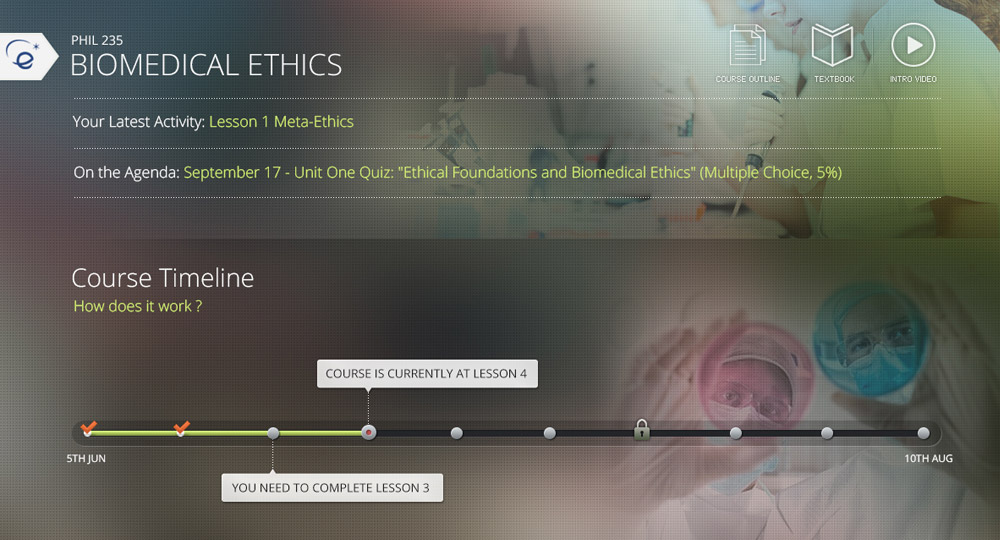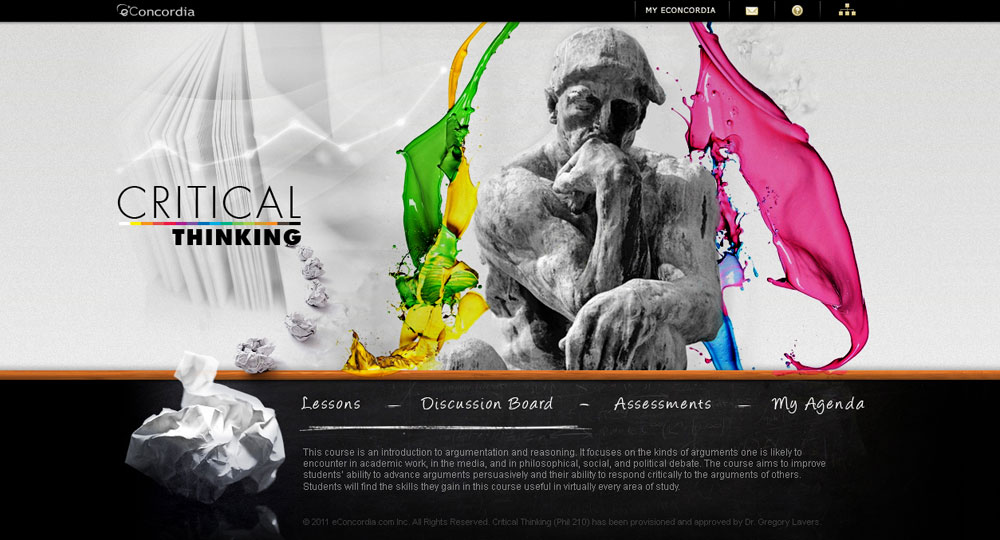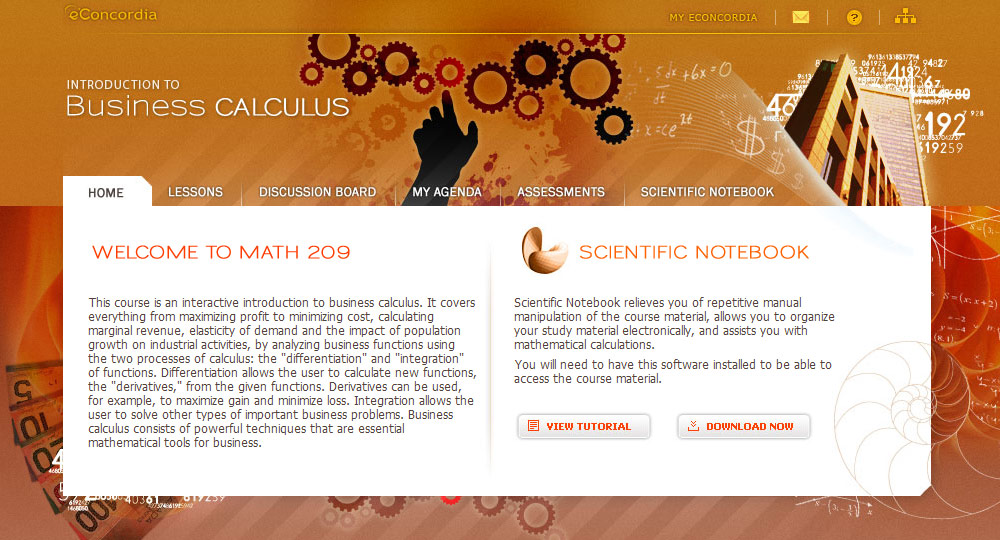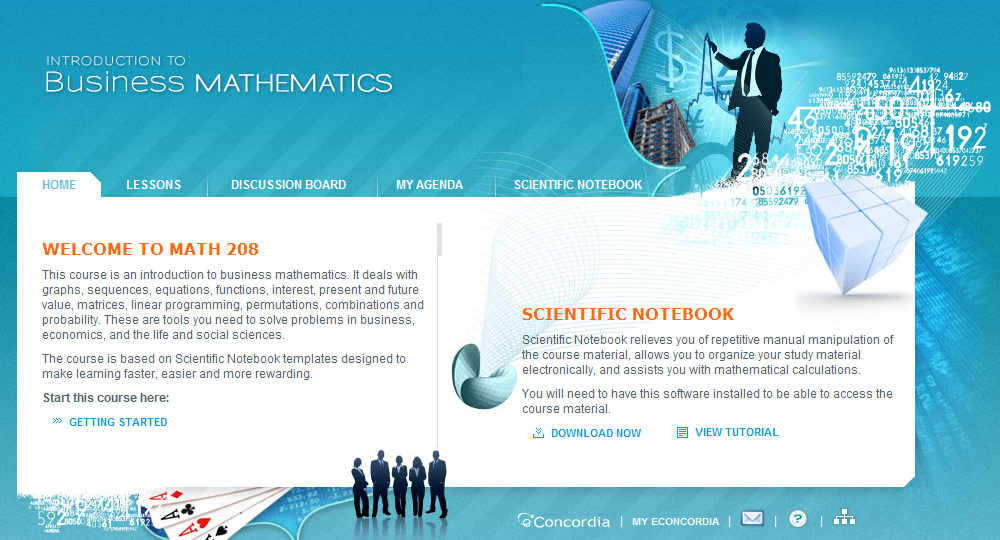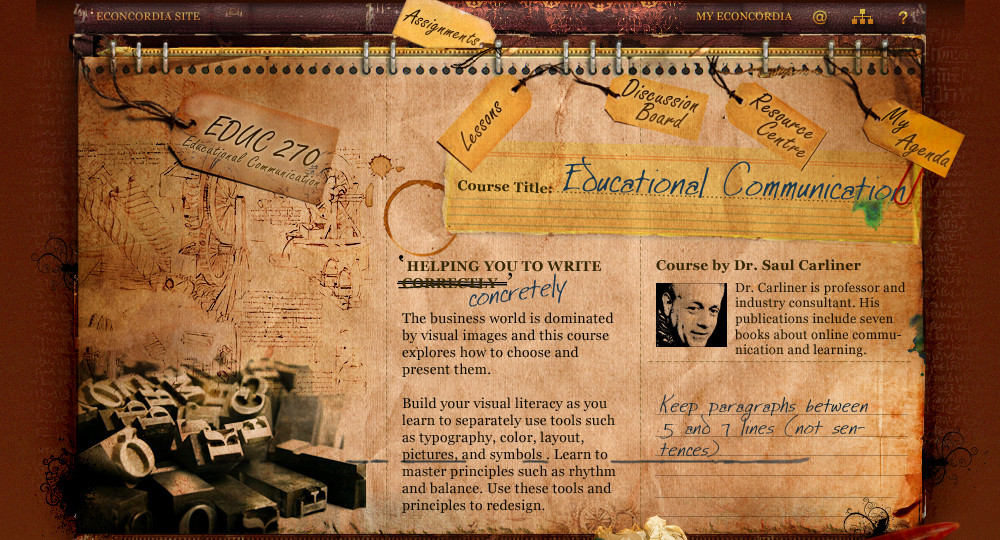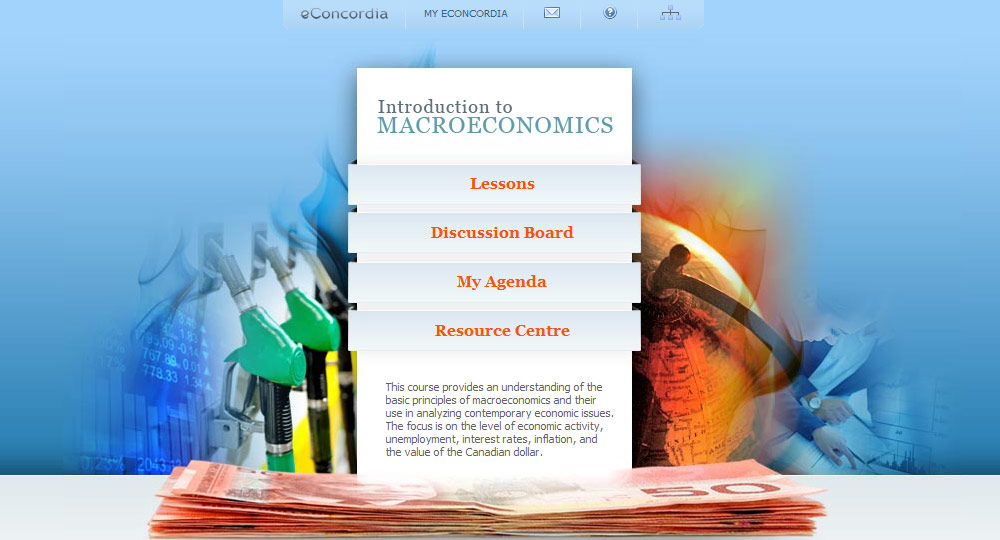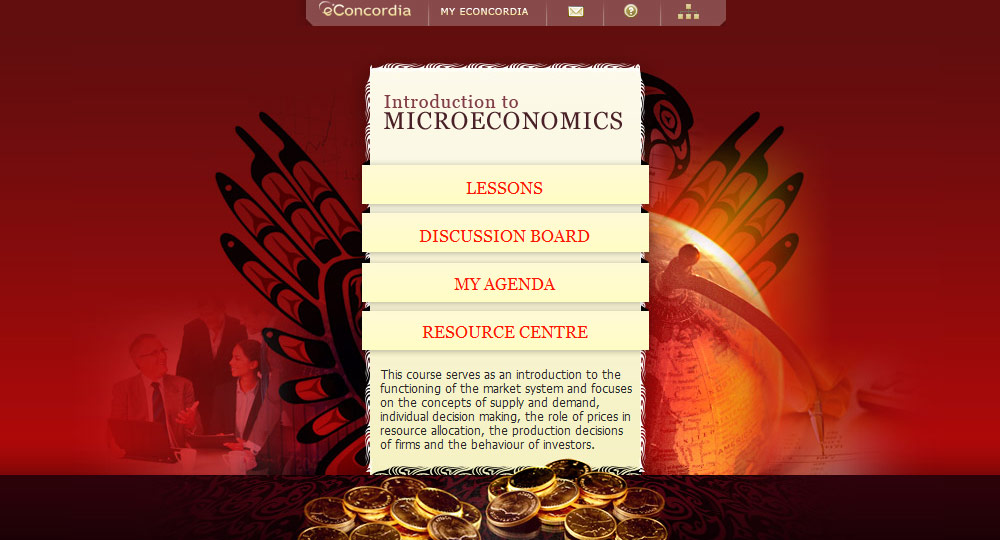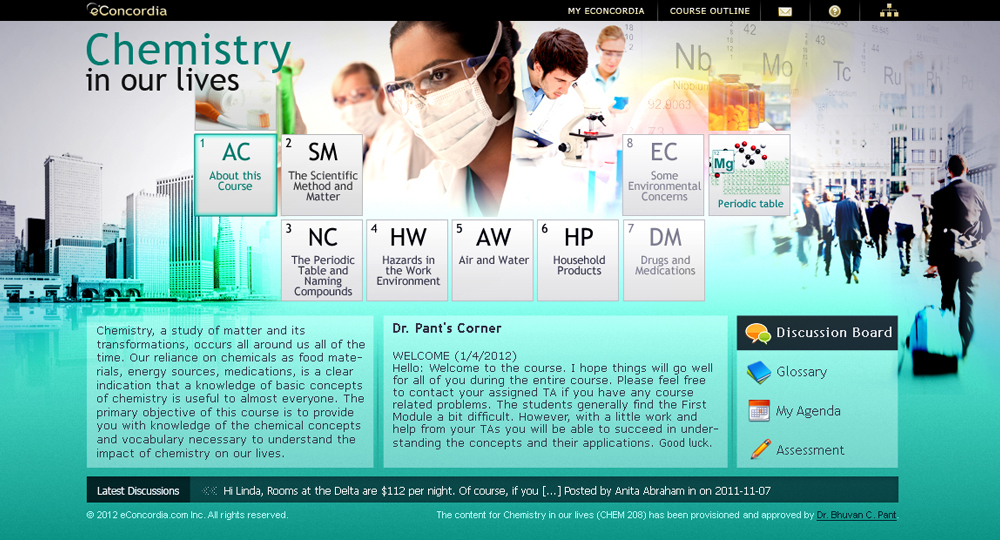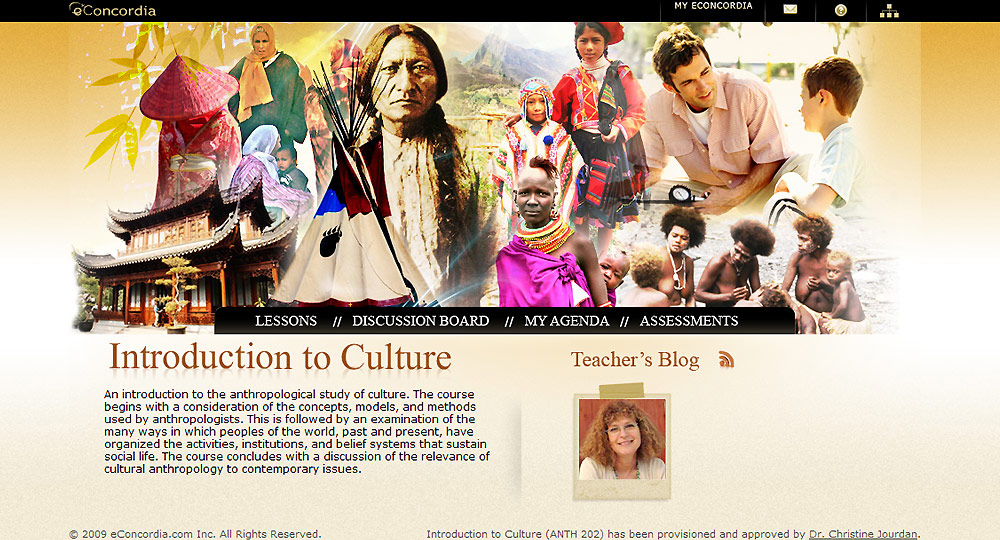KnowledgeOne has created a large variety of online courses.
AerospaceU – DO178
DO-178 course is an introductory training program that aims to explain the software certification context in the aerospace industry.
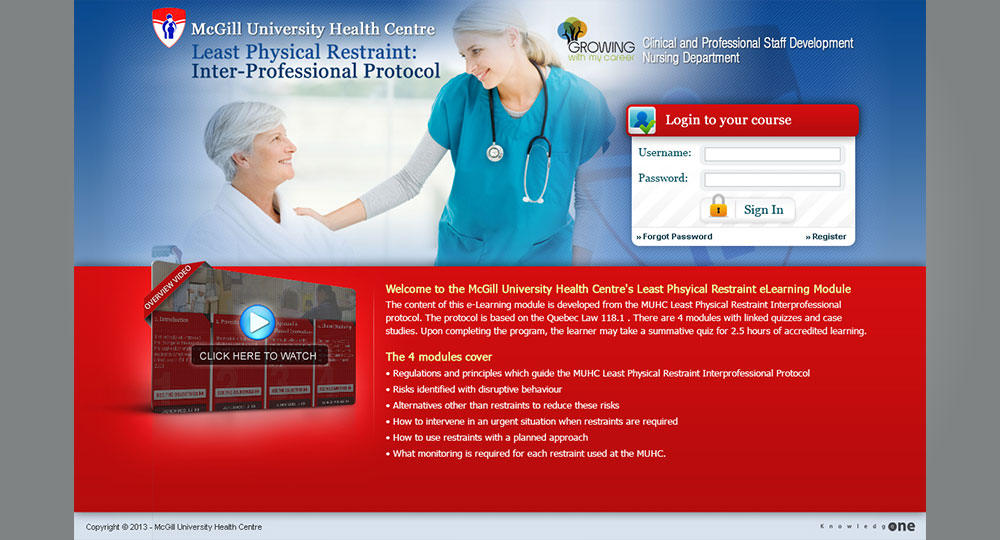
MUHC – Least Physical Restraint: Inter-Professional Protocol
Developed for McGill University Health Centre (MUHC), this course aims to help participants understand Quebec's law and the MUHC protocol on the use of physical restraints and its SAFE framework, as well as identify risky behaviours and put in place unplanned intervention in high risk situations.

Miriam Foundation – Support Worker Training Program
The Support Worker Training Program is a unique and comprehensive program that provides participants with the many critical skills needed in order to work with children with developmental disabilities.
Logistec – Occupational Health and Safety
Introduction to Occupational Health and Safety is an online course that teaches the regulation for Canada and the United States to prevent, act and correct events that may put in risk employee’s health and security.
Lantic – Machinery Training
The courses prepared for Lantic Sugar focus on employee training for handling the assembly line.
Humanitarian U
Humanitarian U courses help humanitarian workers be more competent, prepared and effective, thereby increasing their own safety and enhancing their ability to deliver outstanding care in situations of crises, epidemics and disasters.
Health Experiences
Healthexperiences.ca provides trusted information based on rigorous qualitative research led by experts at McGill University and St. Mary's Hospital Center, in collaboration with the University of Oxford and the UK's award-winning website Healthtalk.org
Management’s New Accountabilities
In this course, the approaches presented will make performance measurement and improvement more effective and strategically supported from management’s perspective; essentially, understanding the business first will result in measurable differences to your overall financial performance.
MOOC: The Ecosystem Approach and System Thinking
A systems thinking approach focuses on systems as a whole: how the parts interrelate and how interconnections create emerging patterns. Systems thinking tools allow us to map and explore dynamic complexity. With a better understanding of systems, we can identify leverage points that lead to desired outcomes and avoid unintended consequences.
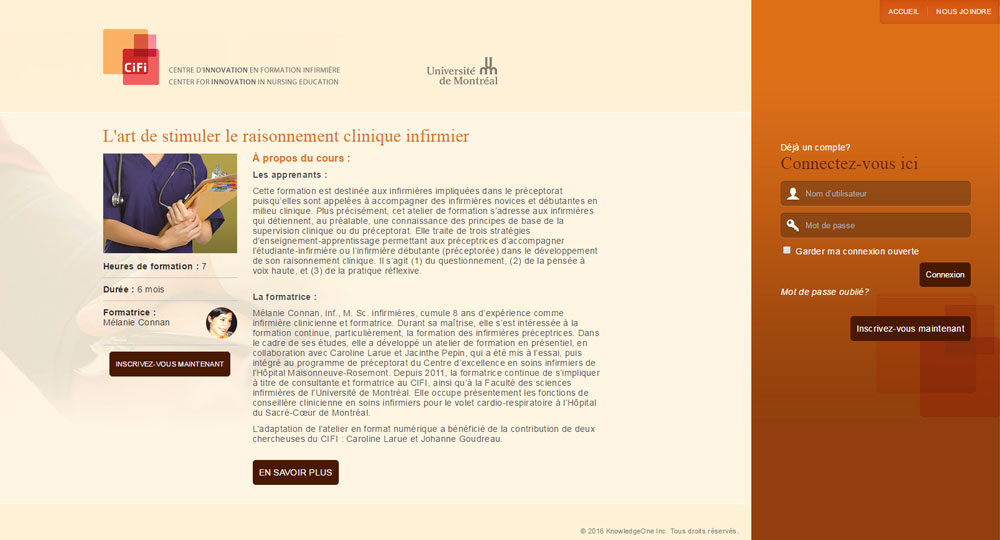
The art of stimulating the nursing clinical reasoning
This training is designed for nurses involved in the preceptorship as they are called to accompany student nurse or nurse debutante in clinical settings.
Economics for Finance
This course covers the fundamental issues of both microeconomics and macroeconomics.
Quantitative Methods for Finance
This introductory course on quantitative methods presents statistical concepts and techniques that are essential in the financial industry.
Fixed Income
Fixed Income teaches how to analyze, valuate and manage fixed-income securities.

Ethics and Global Investment Performance Standards
The materials in this course present investment professionals or students with a framework for ethical conduct in the investment industry.
Derivatives
The Derivatives course explains basic derivatives securities, derivatives markets and the use of options in risk management.
Alternative Investments
This course offers and overview of the most common types of alternative investments such as real estate, venture capital, hedge funds, closely held companies, distressed securities and commodities. Most importantly, this course teaches methods to analyse alternative investment opportunities, their risks and how they might impact on returns.
Corporate Finance
Corporate Finance reviews the principles used by corporations when assessing their financial decisions and selecting their short and long-term investments.
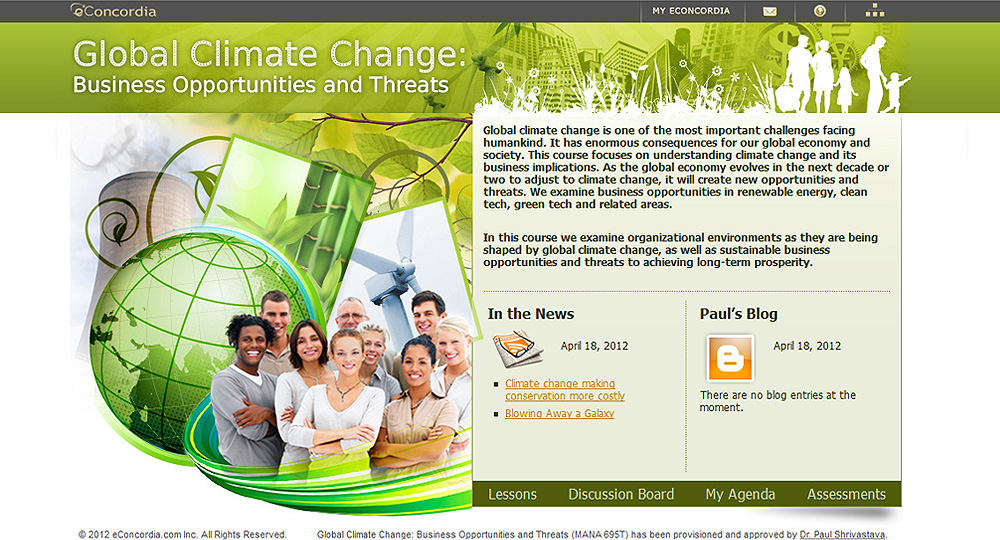
Global Climate Change: Business Opportunities and Threats
This course examines climate change and the business opportunities and threats it presents.
MANA 374 – Sustainable Management
This course introduces the concepts and practices of sustainable management.
Canadian Environmental Issues
The aim of this course is to introduce students to the diversity and complexity of contemporary Canadian environmental changes and challenges.
GDBA 595 – Entrepreneurship
The objective of this course is to introduce graduate students to the entrepreneurial process and the role of entrepreneurs in the new economy.
Introduction to Financial Management
This course provides an overview of the financial management basics.
FINA 210 – Introduction to Real Estate
This course introduces the concepts, principles, analytical methods and tools used for investment, development, and evaluation of real estate assets.
Personal Finance
Personal Finance is a course that will allow students to better manage and plan their own financial affairs in the present and in the future.
Managerial Accounting
In this course, you will learn management techniques that will become an essential part of your business repertoire.
COMM 299/GDBA 595 – Marketing Yourself
This course enables students to apply key marketing concepts to themselves, and to learn about market planning in relation to their careers.
Business Technology Management
The objective of this course is to provide students with an understanding of the role of computer-based information systems in business organizations and the analytical skills required to work with management information systems.
COMM 222 – Organizational Behaviour and Theory
This course is designed to provide students with an opportunity to study individual behaviour in formal organizations.
COMM 215 – Business Statistics
COMM 215 introduces statistics as a tool for dealing with information in quantitative form, imparting techniques of descriptive and inferential statistics in the real world.
Fundamentals of Information Technology
This course deals with information technology issues such as software, hardware, tele-communications, the Internet and personal productivity.
ADMI 202 – Perspective on Canadian Business
This course is designed to review the development of business in Canada, and to examine the relationships between the firm (management) and its owners (shareholders), employees, customers, suppliers, governments and the community.
HIV/AIDS: An Interdisciplinary Introduction
This course provides an interdisciplinary survey of the major issues and challenges raised by HIV/AIDS
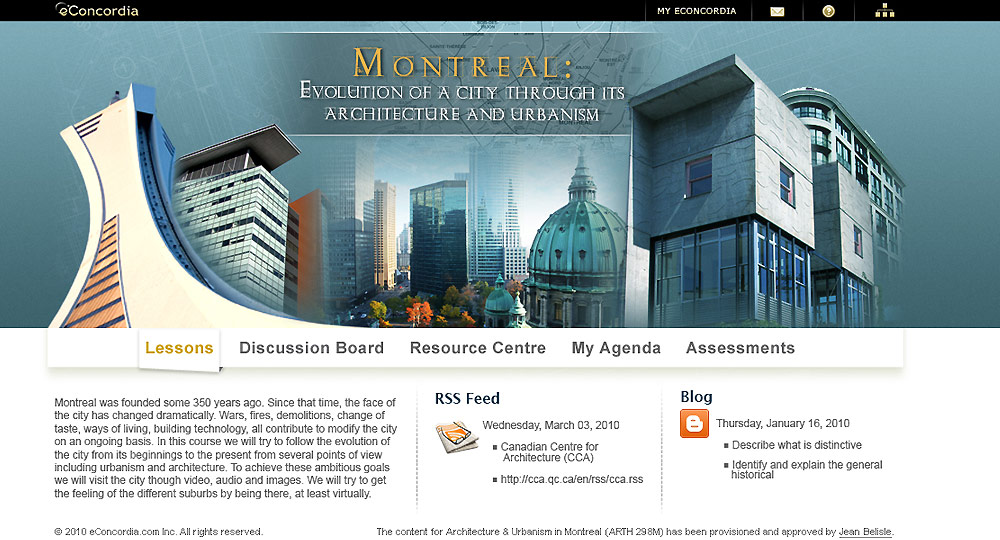
ARTH 298 – Montreal: Evolution through Architecture and Urbanism
In this course we will try to follow the evolution of the city of Montreal, from its beginnings to the present from several points of view, including urbanism and architecture.

ARTH 272 – From Realism to Abstraction in Canadian Art
This course is an in-depth examination of the long path from realism to abstraction in Canadian art.
ARTH 271 – Introduction to Canadian Art
This course introduces Canadian art, with a particular emphasis on Québec art and society in relation to the rest of the country.
Fluid Mechanics I
This course is an introduction to Fluid Mechanics.
Professional Practice & Responsibility
In this class we will understand professionalism, the engineering code and ethical practice of engineers with special reference to Quebec and Canada.
Introduction to Semiconductor Materials and Devices
This course is a introduction to Semiconductor Materials and Devices.
Fundamentals of Programming
Fundamentals of Object-Oriented Programming is an introductory course to the basic principles of programming with classes and objects using C++.
THEO 228/IRST 228 – Celtic Christianity
This course examines the impact and development of Christianity as it emerged in the Insular World (Britain, Ireland and the Atlantic seaboard) in Late Antiquity and the Early Middle Ages.
THEO 206 – Origins of Christianity
This course is a study of the historical origins of Christianity with a view to understanding the creative originality of the Christian tradition.
THEO 204 – Introduction to Christian Ethics
This course is an introduction to the field of ethics in the context of Christian faith.
SOCI 329 – Sociology of Sexual Labour
This course explores the sociology of sexual labour.
SOCI 298 – Sociology of Business
This course is designed to give students a broad overview of the impact of business on our daily lives.
SOCI 282 – Canadian Society
This course will introduce students to the study of Canadian society from a sociological point of view.
SCPA 201 – Introduction to Canadian Public Policy
This course introduces students to the theoretical, philosophical, and ethical foundations as well as the social logic of public policy formulation in modern societies.
RELI 375 – Religion in Canada
This course looks at religious diversity and pluralism in Canada.
RELI 216 – Encountering World Religions
The course explores a number of contemporary contexts wherein people of diverse religious backgrounds have come into contact with one another.
Brain and Behaviour
This course is an introduction to the biological bases of behaviour.
POLI 391 – Middle East and Global Conflict
This course is a study of the Middle East in transition, conflict, and ideology in a global context of changing regional alliances.
POLI 298P – Introduction to Family Law
This course explores the history, evolution, and current state of family law in the province of Quebec.
POLI 298 – Introduction to Canadian Criminal Law
This course explores the Canadian criminal law system with particular emphasis on the Criminal Code.
POLI 298 – Balance of Power
The purpose of this course is to familiarize students with the basic concepts associated with the balance of power.
POLI 219 – Governance and Organized Crime
This course covers many aspects relating to organized crime, including the study of various organized crime groups and their activities.
POLI 216 – Introduction to the United Nations
This course examines the operations and issues of the United Nations organization.
POLI 214 – Human Rights: An Overview
The objective of this course is to introduce the students to: the historical origins and evolution of the concept of human rights.
POLI 209 – Public Security and Terrorism
This course provides an overview of modern terrorism and its evolution, focusing on terrorist movements, groups and incidents in many parts of the world over time.
POLI 202 – Introduction to Political Science
This course consists of an introduction to some of the basic concepts that are indispensable to the study of political science.
INTE 296 – Discover Statistics
This is an introductory course on statistics, which enables students with basic skills in mathematics to master the elementary concepts of the subject.
HIST 262 – History of China
This course provides an introduction to China’s history from earliest times to the modern era.
ENGL 306 – Tolkien’s Old English
This course studies the Old English language through the fantasy novels of J.R.R. Tolkien alongside the works of Old English literature that inspired him.
ENGL 270 – Introduction to Canadian Literature
This course will introduce students to the study of Canadian literature and focus on an understanding of Canadian literary history.
COMS 361 – Propaganda
This course on propaganda is designed to address propaganda as a phenomenon and as a technique.
AHSC 314 – Adolescence: ISS Intervention
This course links knowledge of adolescent development to a more detailed examination of related adolescent patterns and issues.
AHSC 260 – Program Planning Design and Evaluation
The course prepares students to develop effective programs designed for various client populations.
AHSC 242 – Recreation and Leisure in Canada
An Introduction to recreation and leisure in Canadian society, this course exposes students to the perceptions of free and discretionary time, concepts of leisure, theories and interrelationships of play, and the historical foundations for the leisure discipline.
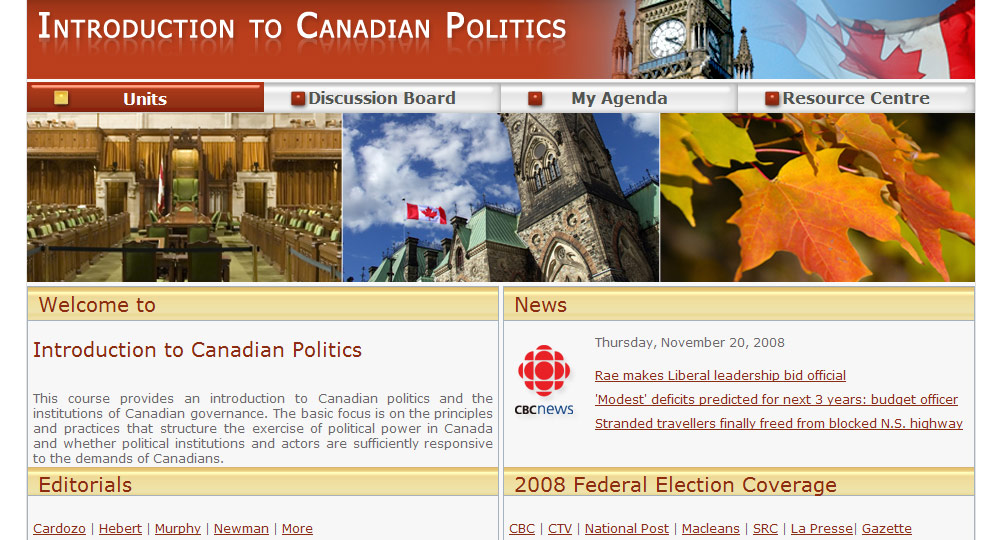
POLI 204/SCPA 204 – Introduction to Canadian Politics
This course is a basic introduction to the fundamental issues of Canadian public life and the federal political system.
PHIL 266 – Philosophy of Religion
This course consist in a historical and systematic survey of a number of key philosophical questions relating to religion.
Biomedical Ethics
This course examines some of the central problems in biomedical ethics.
PHIL 210 – Critical Thinking
This course is an introduction to argumentation and reasoning.
Fundamental Mathematics II
This course is an interactive introduction to business calculus.
Fundamental Mathematics I
This course covers fundamental mathematics principles and it is a prerequisite fro Commerce and Administration students.
Vectors and Matrices
Vectors and Matrices is an introductory course to linear algebra.

Global Environmental Issues and Ecological Justice
This course is an introduction to the emerging field of global environmental politics.

Introduction to Computer Usage and Document Design
This course is an introduction to basic computing concepts and applications presented through Web-based media that is designed for students with minimal computer skills.
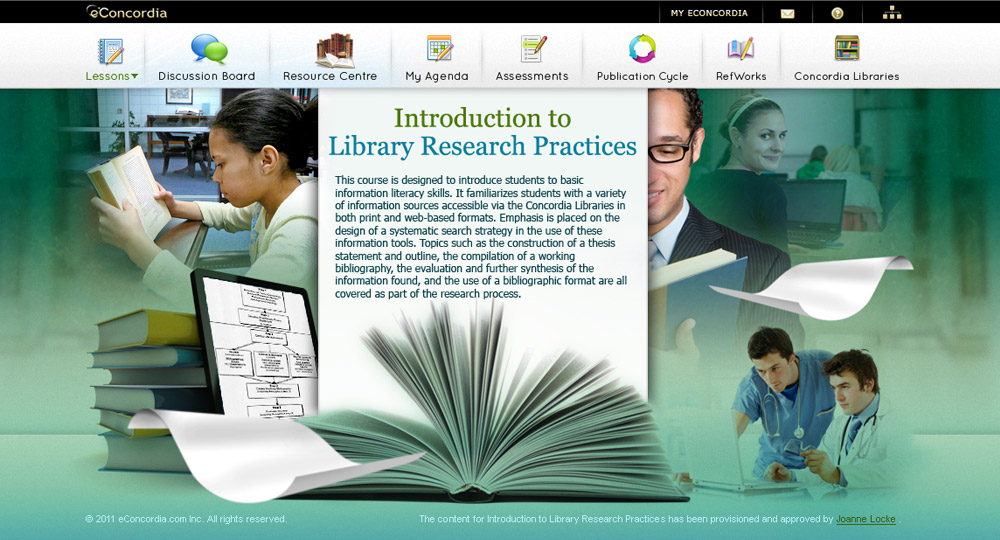
INST 250 – Introductory Information Literacy Skills
This course introduces students to basic library research practices.
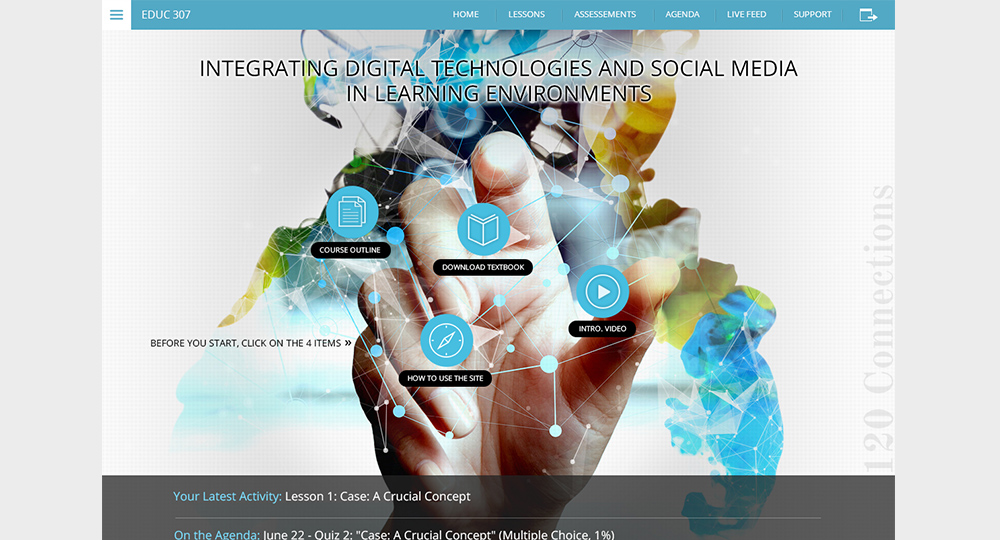
EDUC 307 – Integrating Digital Technologies and Social Media In Learning Environments
This course introduces students to the social and cognitive theories of digital technologies in learning and training environments.
EDUC 270 – Educational Communication
This course teaches the basics of educational communication with an emphasis on a range of learning contexts.
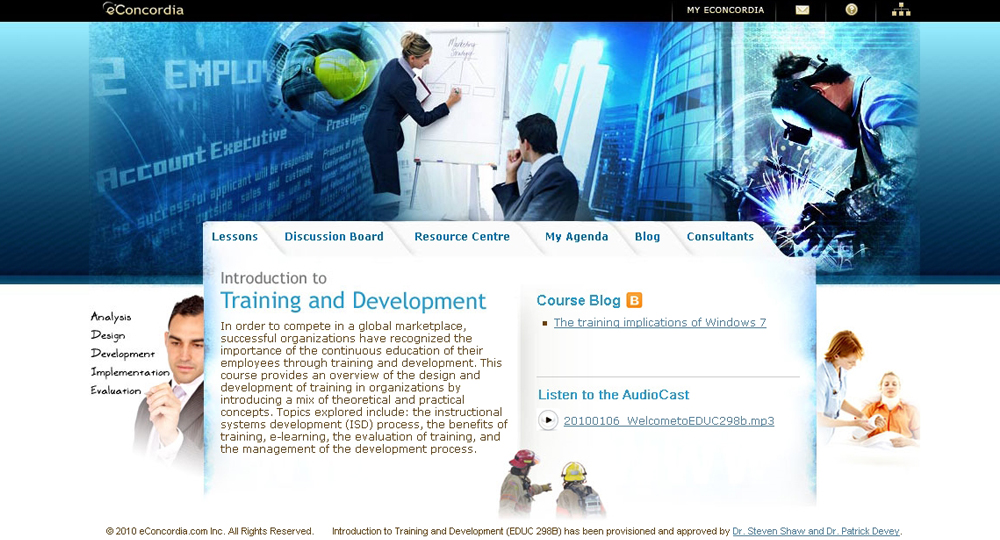
EDUC 240 – Introduction to Training and Development
This course provides an overview of the design and development of training in organizations by introducing the learner to a mix of theoretical and practical concepts.
Introduction to Macroeconomics
An introductory analysis of aggregate economic activity.
Introduction to Microeconomics
This course serves as an introduction to the functioning of the market system.
CHEM 208 – Chemistry in Our Lives
This course is designed as an introduction to chemistry for non-science students.
ANTH 202 – Introduction to Culture
This course is an introduction to the anthropological study of culture.


